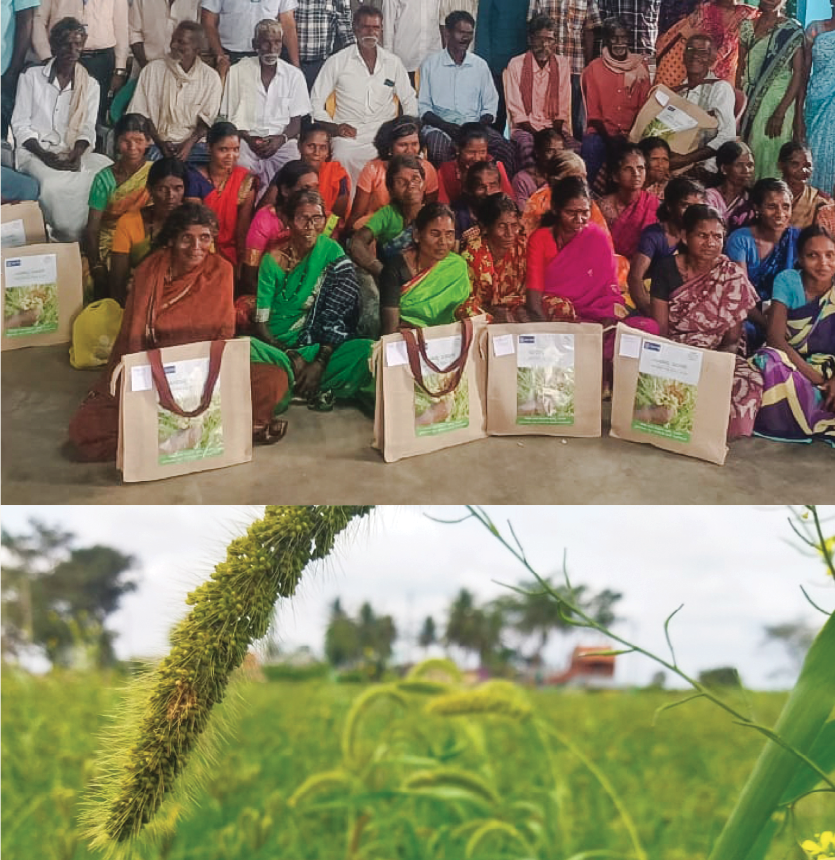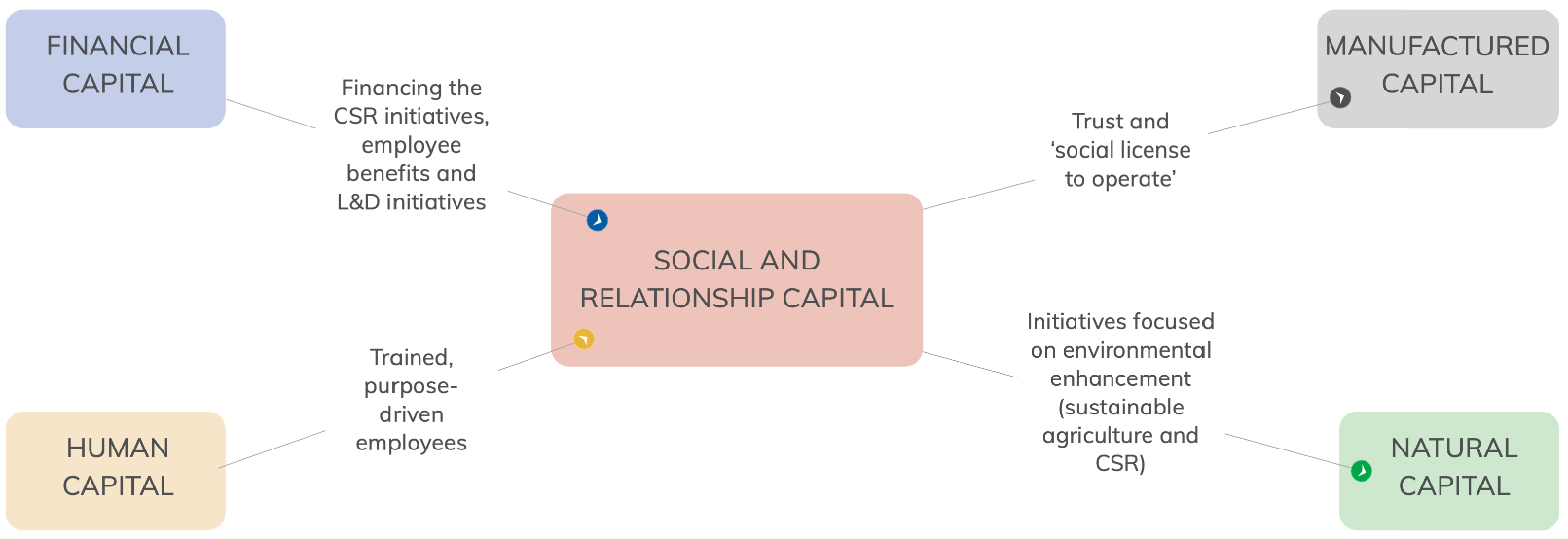
At TCPL, we are committed to upholding our role as a responsible enterprise delivering long-term value to our stakeholders. We take pride in our product offerings and brands that consumers trust, as also the way we operate - underpinned by environmental and social conscientiousness, regulatory compliance, and uncompromising integrity. Our governance is steered by explicit processes and policies that drive transparency and accountability across all levels of our organization. The foundation of our governance lies in the Tata Code of Conduct, which integrates learnings from over a century of operations, our global geographic presence, diversified businesses and evolving international best practices; it also aligns with our growth objectives and vision.
Our ESG governance exemplifies participation and responsibility across all levels, starting with the Board's CSR and Sustainability Committee at the top. A Steering Committee manages the execution of our sustainability strategy and is tasked with initializing CSR & Sustainability initiatives across our operations. The Steering Committee also identifies new initiatives, supports in risk management, and allocates resources for promoting sustainability. Our governance structure is further comprised of working groups that correspond with each pillar of our sustainability strategy, such as the Nutrition Committee, Business & Human Rights Committee and the Sustainable Operations committee.
The Internal Audit and Risks team at Tata Consumer also holds a significant role in our ESG agenda. This team is responsible for the oversight of the organization's risk management process, which thoroughly integrates ESG risks into our organizational risk matrix. Following this, appropriate mitigation actions are identified and enacted. Residual risk is thereby reduced to an acceptable level and continuously monitored.
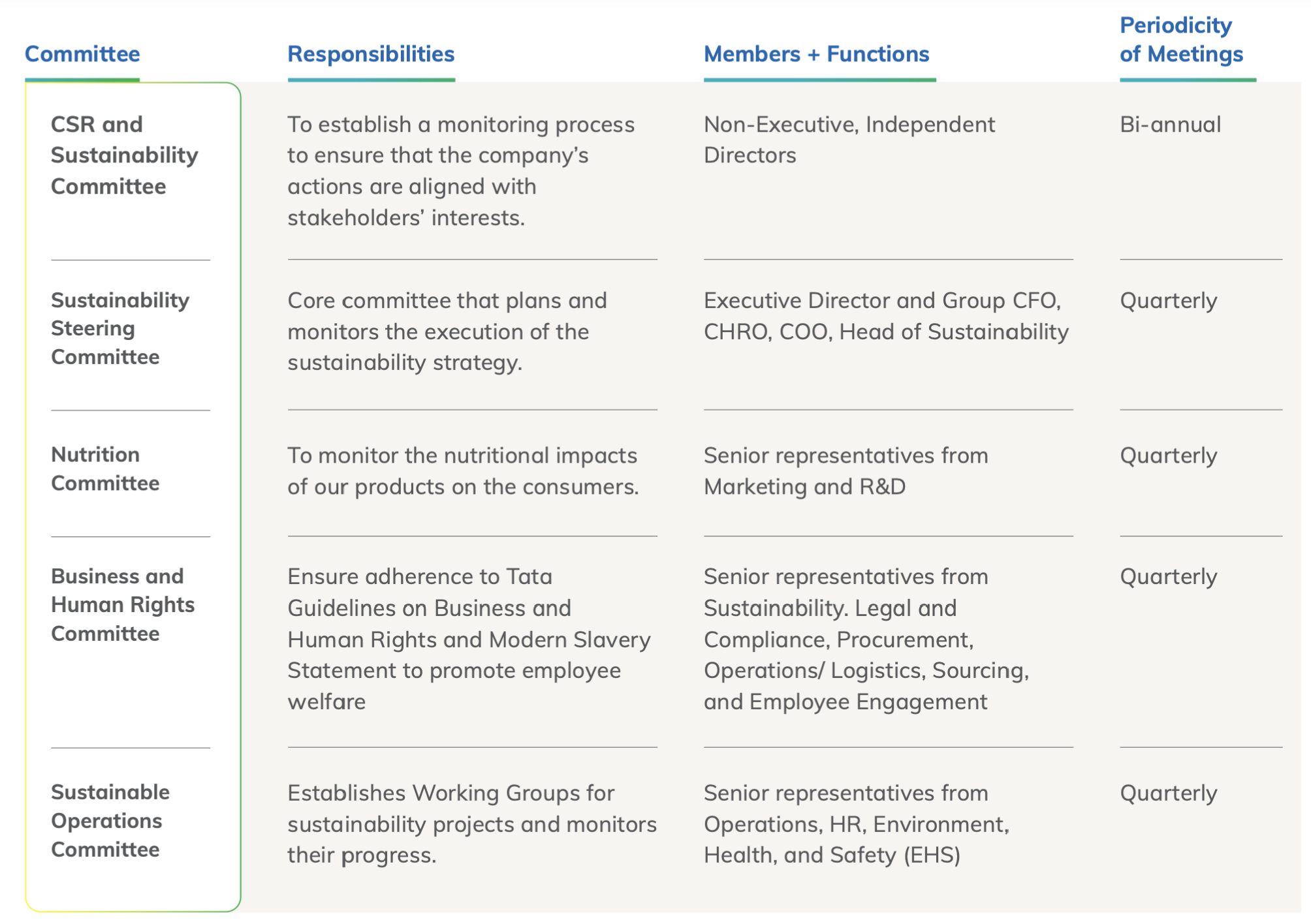
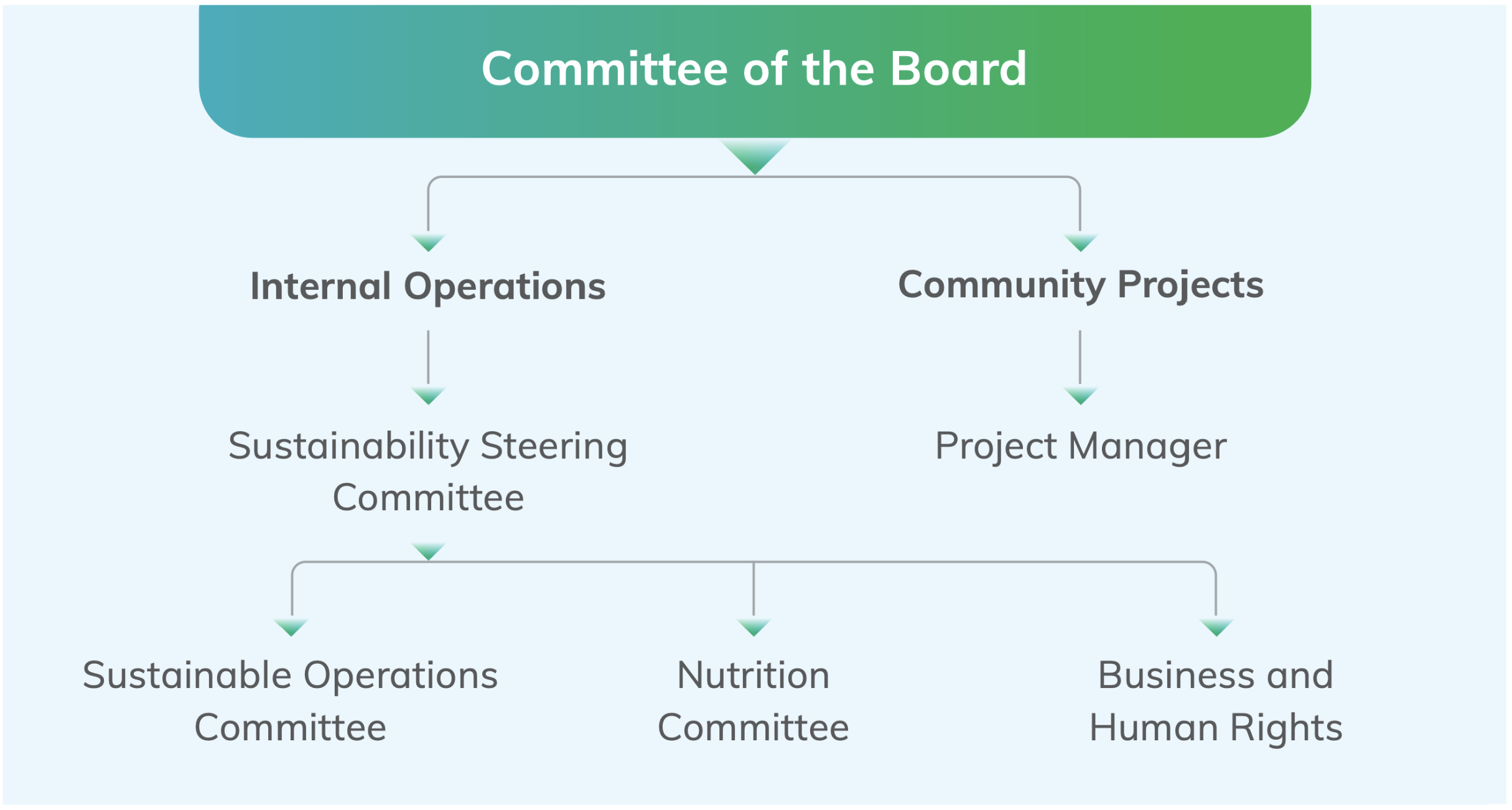
This year, we have furthered our commitment to sustainable practices by introducing several new policies, including the 'For Better' Nutrition Policy, the Energy Conservation Policy, Environment Policy, Marketing and Communication Policy, and Green Procurement Policy.


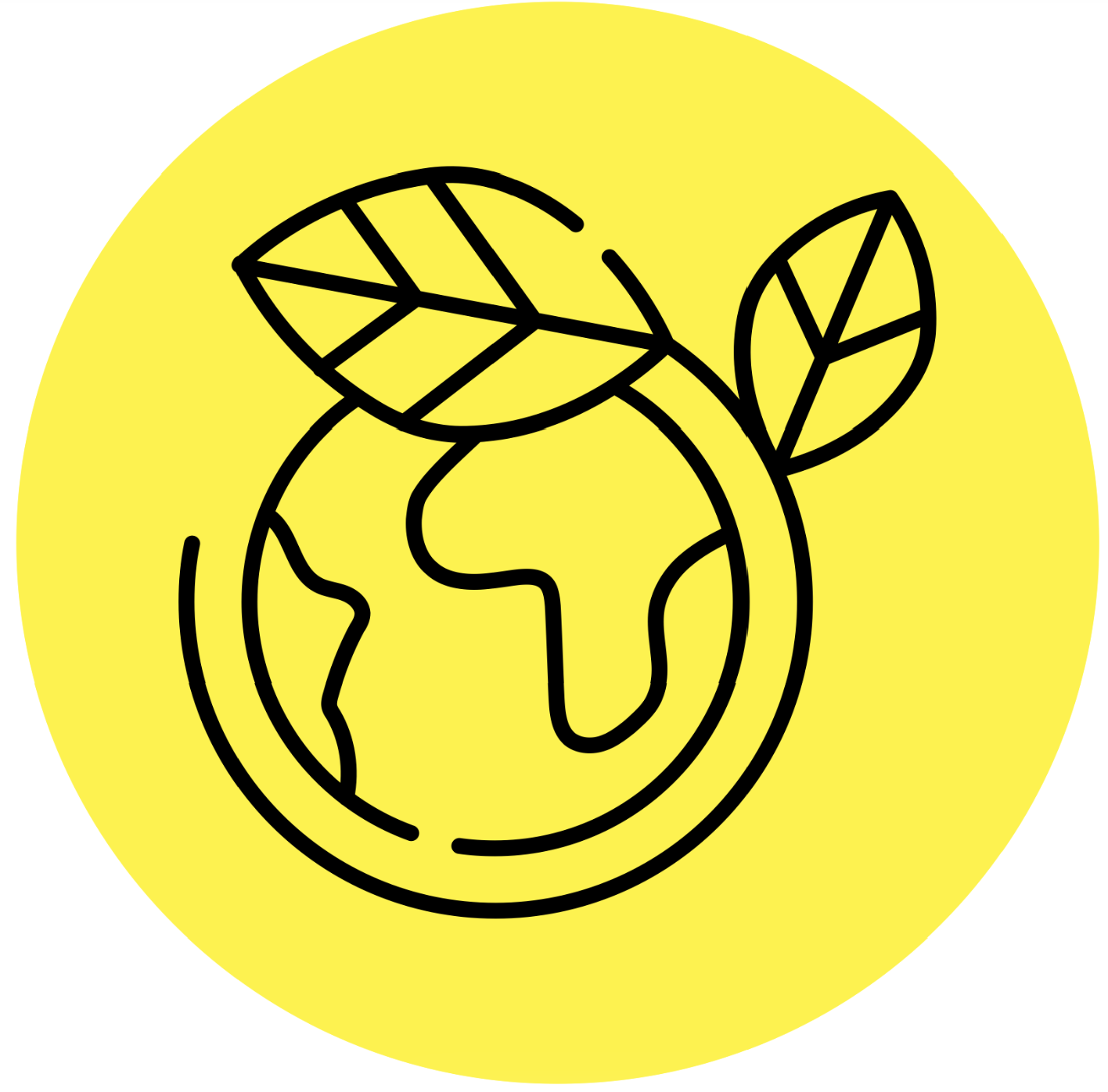

Consumer Connect
Sustainable products
250 Mn Households in India to be reached through our product portfolio by 2030
100% Sustainable products by volume by 2040
Sustainable supply chain
Responsible sourcing
100% Critical supplier assessments across all geographies by 2030
100% Sustainably sourced critical raw materials by 2040
Energy
Circular Economy
Water
Net Zero by 2040 across all geographies
100% Of packaging material to be recyclable, compostable, or reusable across all geographies by 2030
Water-neutral across all operations by 2030
Community Initiatives
Safe Operations
Workforce Diversity
2 Mn Community beneficiaries by 2030
Health and safety certifications
50% Of diverse workforce across all geographies by 2030
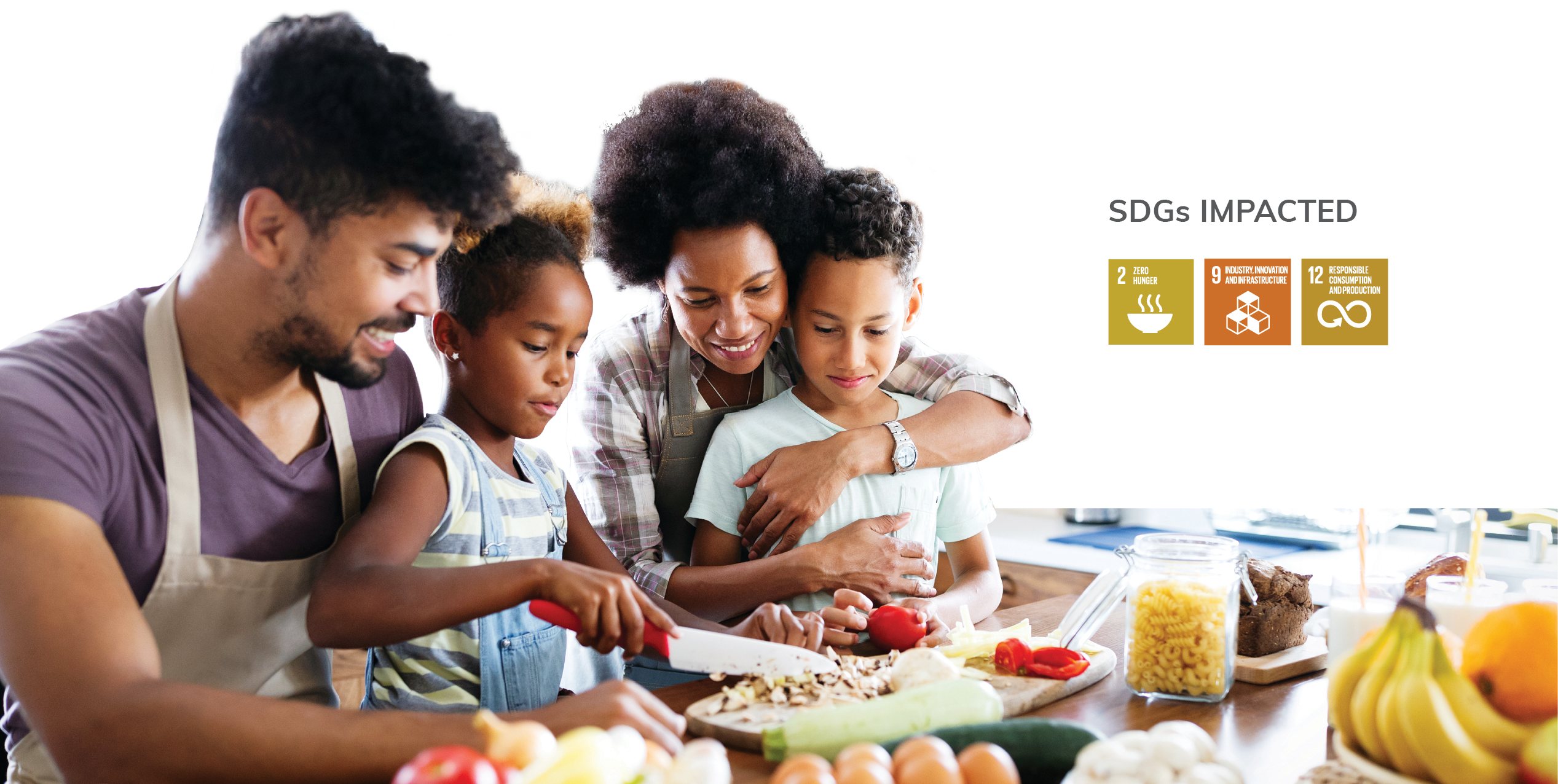

 Access to
Access to  Consumer
Consumer  Product
Product  Responsible
Responsible 2.40 X increase in health and wellness focused new product launches compared to FY 2020-21.
Instituted a 'For Better' Nutrition Policy, that is anchored in nutrition science, global recommendations (such as UN's SDG goals), local regulations and government recommendations.
Our vision is to improve access to healthy, natural, and safe food for our consumers through our portfolio of great-tasting products designed to enhance health and well-being.

Tata Consumer Products is uniquely positioned as an FMCG business that is principally focused on food products and beverages. While on the one side, there are multiple regulatory standards and quality norms that we are expected to adhere to, we also realise the enormous potential to positively impact the lives of millions of our consumers. Our products are consumed by a wide range of consumers on an almost daily basis, thereby providing an opportunity for our products to act as a medium for delivering healthy nutrition.
There is a growing consumer preference for products that are healthy and nutritious. Wellness is a key consumer trend that has gathered momentum. We have a portfolio of great-tasting products that enhance consumer health and well-being, while also offering the added benefit of convenience. We are actively pursuing organic and inorganic growth avenues that can support us in our quest to meet consumers' nutritional aspirations.
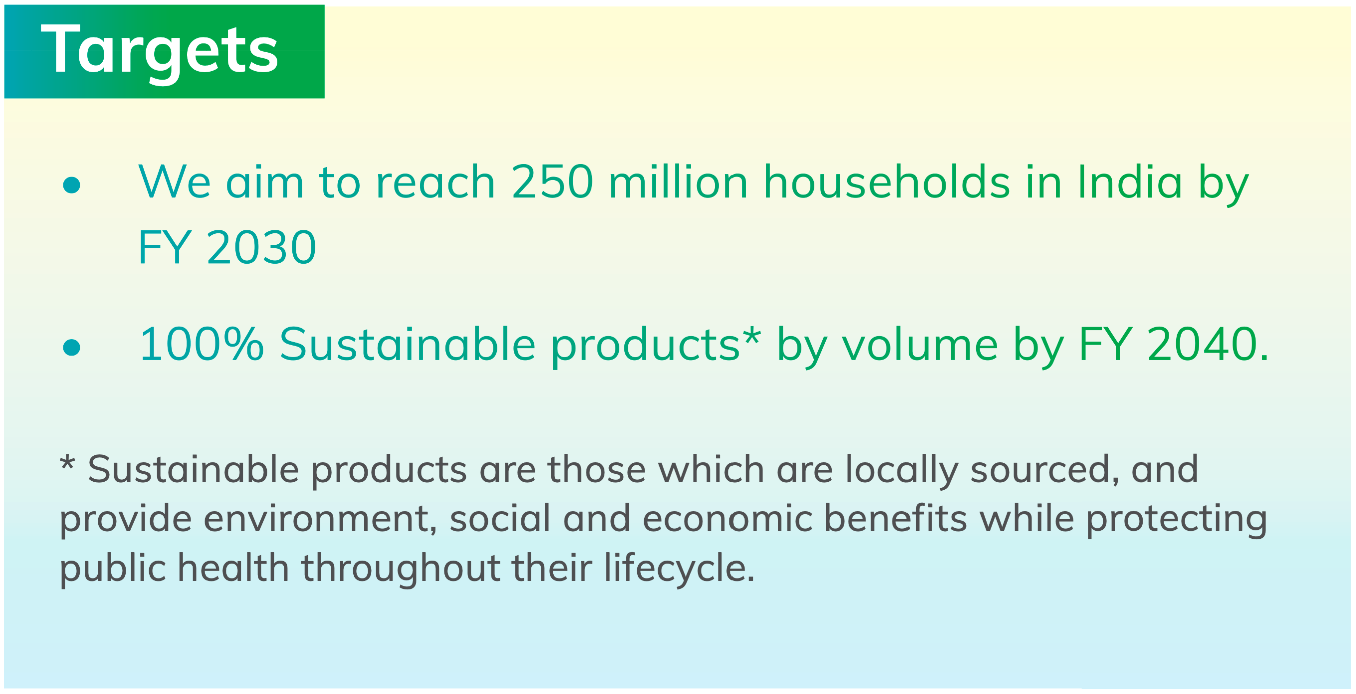
The 'For Better Nutrition' pillar encompasses our endeavor to enhance access to nutrition with affordable, nutrient-enriched offerings and harness consumer insights for tailored offerings. It underscores our dedication to understanding and fulfilling consumer demands while ensuring transparency in nutritional data. This pillar also embodies our unwavering commitment to product stewardship, which is based on maintaining high-quality standards and championing sustainability in product lifecycles. Embodying the spirit of ‘Expanding Horizons. For Better', in FY 2023-24, there has been an increase of 2.4X in health and wellness focused new product launches viz-a-viz FY 2020-21.
Our commitment to enable access to better nutrition through innovative and affordable product offerings is one of the important cornerstones that defines our organisational purpose. We have a portfolio of great- tasting products that enhance health and well-being, while also offering the added benefit of convenience. Our unwavering focus on the overall health and wellbeing of our consumers extends beyond simply providing high- quality food products. Our efforts are characterised by policy advocacy, an expanded consumer reach, and focused initiatives on building awareness and promoting healthy dietary choices. This includes - designing products at affordable prices, exploring partnerships with key opinion leaders and nutritionists, leveraging relevant digital platforms for awareness building and increasing outreach.
Partnership discussions with non-profit organisations involved in community health and welfare programs have been undertaken to maximise reach of products such as Double Fortified Salt (DFS),which are high on benefits. All our products carry transparent nutritional information that often go beyond meeting regulatory requirements. Our extensive range of unique product formats are designed aligning with the Eat Right movement - an endeavour to revolutionise India's food system to ensure safe, healthy, and sustainable food for all Indians, led by the Government of India and FSSAI. Our commitment to better nutrition is encapsulated in our 'For Better' Nutrition Policy for Health, Happiness & Wellness, which is founded on five fundamental principles.
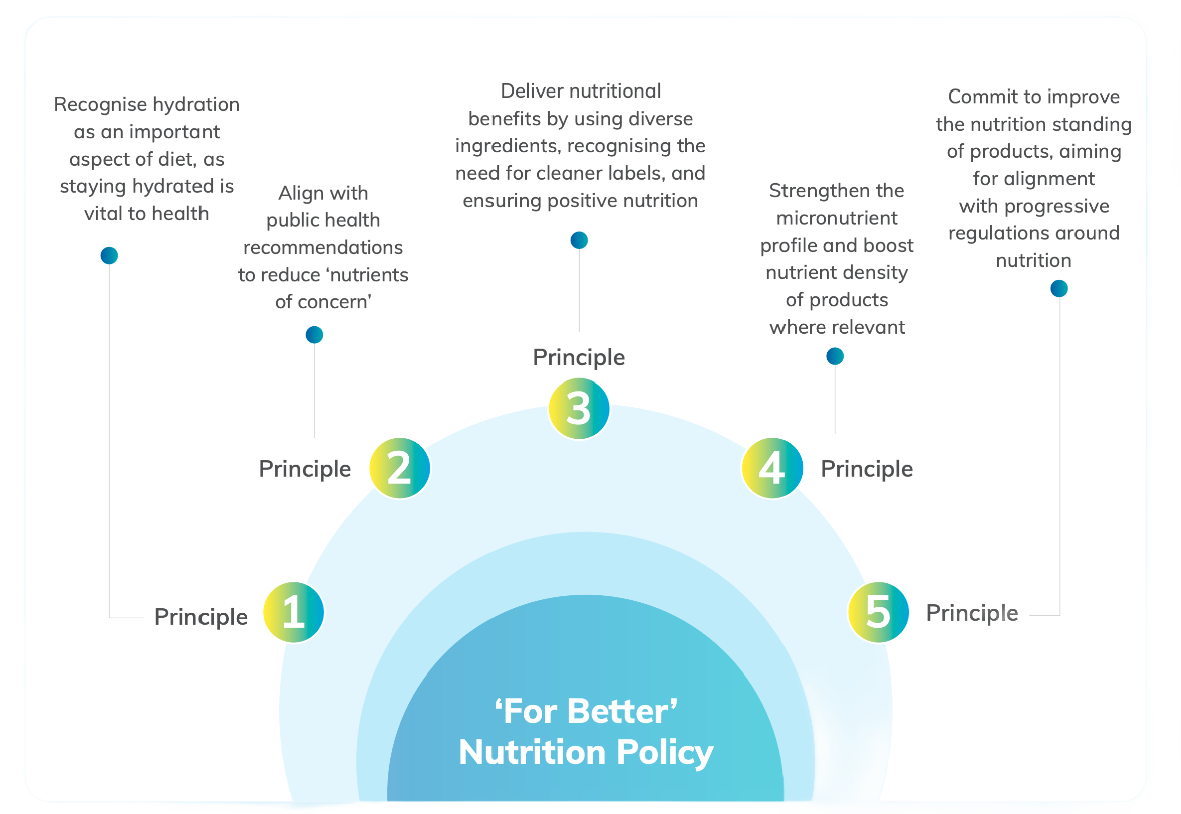

This comprehensive approach resulted in categorisation of our products into three major 'Consumer Need States'
Essential Wellbeing offers minimally processed, single- ingredient products known for their
holistic goodness and regular consumption, making them nutrient-dense with clean labels.
Trusted
Nutrition products educate consumers on nutrition, usually featuring improved versions of
existing formulas with added benefits or reduced unhealthy ingredients. Superior Experiences
provide indulgent food and beverage options emphasising taste and convenience.
The policy further establishes comprehensive guidelines for ingredients, nutrients and
claims
that cater to consumer needs. This policy directs us through a stringent framework that
empowers
us to innovate and develop products with responsibility, while persistently enhancing the
nutritional content of our products.
The policy also guides in the clear and transparent communication of nutritional benefits to
consumers.
TCPL upholds the implementation of this policy through robust internal procedures ensuring
correct declarations, regulatory compliance, and serve size clarity. The Advisory Committee
for
Nutrition Policy is chaired by Global Head of R&D and Chief Human Resource and
Sustainability
Officer; the committee will be presided
by all executive committee members, including the Presidents of respective business
verticals.
This committee is the governing body for the policy and public communications therein will
have
to be approved by this committee.
The For Better' Nutrition Policy not only steers current initiatives but also adapts to
changing
consumer needs, aiding in creating a healthier, sustainable, and better nourished India
In our pursuit for nutritional excellence, we have formulated a defined set of metrics to monitor and appraise the nutritional improvements within our existing product lines. To promote better nutrition, two primary guidelines have been established, namely, the 'For Better' Food Ingredient guideline and the 'For Better' Nutrient guideline.
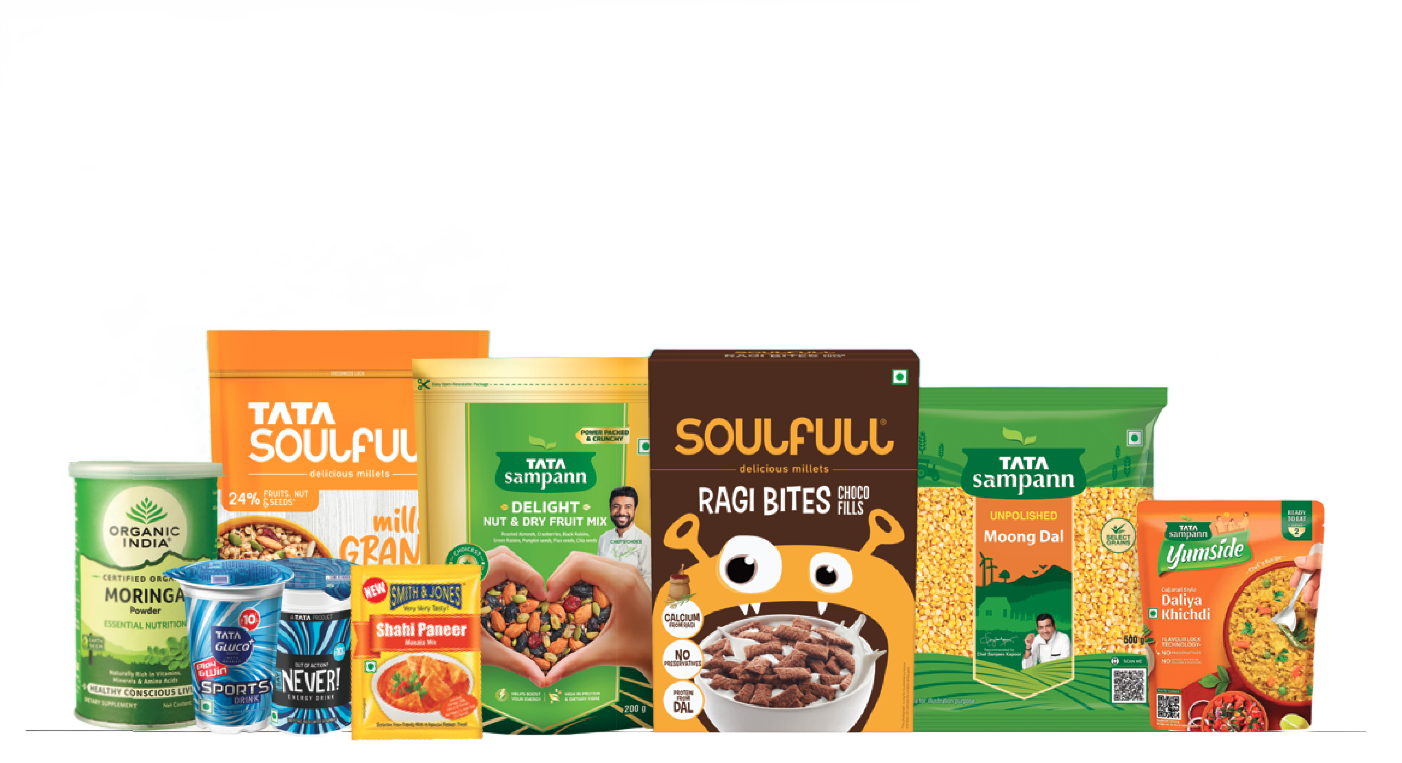
The 'For Better' Food Ingredient
guideline sets out rules for usage of
various ingredients to cater to consumer requirements. It considers ingredients such as
Partially Hydrogenated Vegetable Oil (PHVO), refined ingredients (like sugars and flours),
whole
grains, legumes, millets, nuts, pre and probiotics, herbs and botanicals, as well as
additives
like artificial colours, flavours, and preservatives.
In a similar vein, the 'For Better' Nutrient guidelines have been created for consumers,
taking
into account nutrients such as trans- fat, safa, sodium, sugar, total fat & energy, protein
&
fiber, and micronutrients.
By emphasising the inclusion of health-promoting ingredients such as nuts, seeds, dietary
fibres, protein, and whole grains, we aim to integrate positive nutrition in every bite. Our
strategy centers around delivering products that not only taste great but also enrich
wellness
and wholesome living. This approach correlates with our commitment towards promoting a
healthier, balanced lifestyle for our valued consumers. These ingredients, key to our
nutritional strategy, are referred to as “positive nutrition”.
Having recognised the common deficiencies in the average Indian diet, TCPL is focused on
infusing our products with these critical nutrients. Through this, we are striving to tackle
diet-related deficiencies and contribute to improving overall nutrition. Leveraging our
diverse
portfolio that encapsulates everyday essentials like salt, tea, coffee, and pulses, we are
delivering not just food, but nutrition through all the daily consumables. Thus, at TCPL, we
are
making nutrition a readily accessible reality.
Our nutrient enrichment practices, are not merely additive, but are formulated based on
an
understanding of regional dietary needs and a commitment to addressing them effectively.
As we enrich our food products, we remain committed
to adhering strictly to established guidelines for food fortification such as Food
Safety
and
Standards Authority of India (FSSAI) and the Recommended Dietary Intake (RDI). This
ensures
that
our fortification/enrichment process aligns with nationally and internationally
recognised
standards, delivering food products that are both nutritionally beneficial and safe for
consumption.
New launches with fortification/added nutritional benefits in FY 2023-24
We have leveraged our expertise in tea to strengthen our health & wellness portfolio, focusing on innovative products benefiting consumers. Observing consumer readiness for tasty, micronutrient-rich products, we created Tata Tea Gold Vita Care, a new product enriched with four vital vitamins. According to the meta-analysis conducted, the highest occurrence of micronutrient deficiency was found in Vitamin D (61%), trailed by Vitamin B12 deficiency (53%) and folic acid deficiency (37%). TCPL chose to enrich tea with Vitamin D and Vitamins B6, B9, and B12, that are known for supporting maintenance of normal bone health, aiding in reducing tiredness and fatigue, supporting normal blood formation, and facilitating normal energy-yielding metabolism. The methodology adopted by TCPL guarantees that each 2 gram serving contains 15% of the recommended dietary allowance (RDA) of these micronutrients.
Furthermore, the product is engineered to release the vitamins seamlessly into the boiling
water/milk without impacting the tea's taste, thus maintaining the familiar experience of
consuming regular tea. Tata Tea Gold Vita Care creates a soothing sensory experience while
delivering a nutrient-rich brew. The sophisticated blend of antioxidants, vitamins, and
natural
energy boosters transforms tea-drinking into a holistic wellness journey.
With Tata Tea Gold Vita Care, TCPL is not just promoting holistic well-being, it is
empowering
every household with a healthier beverage choice.
We are dedicated to making nutrition affordable for all, as we believe that cost should not
be a
barrier to a balanced and healthy diet. We are recognised as a frontrunner in the green tea
category, notably for fortifying our tea varieties. Tetley Green Tea Immune, distinguishes
itself as the only such product that enriches tea with Vitamin C. We also ensure that we are
delivering such nutrition enrichment at low-to-no increase in prices.
Salt is another example to our dedication to providing cost-effective nutrition. Enhanced
with
several essential
nutrients like zinc and iodine, it serves to strengthen immunity, offering immense benefits
to
consumers, all while carrying a marginal price increase compared to regular salt.
This pricing ensures that our consumers can easily afford and access a healthier,
nutritionally-enhanced alternative, in line with our mission to make nutrition accessible to
all.
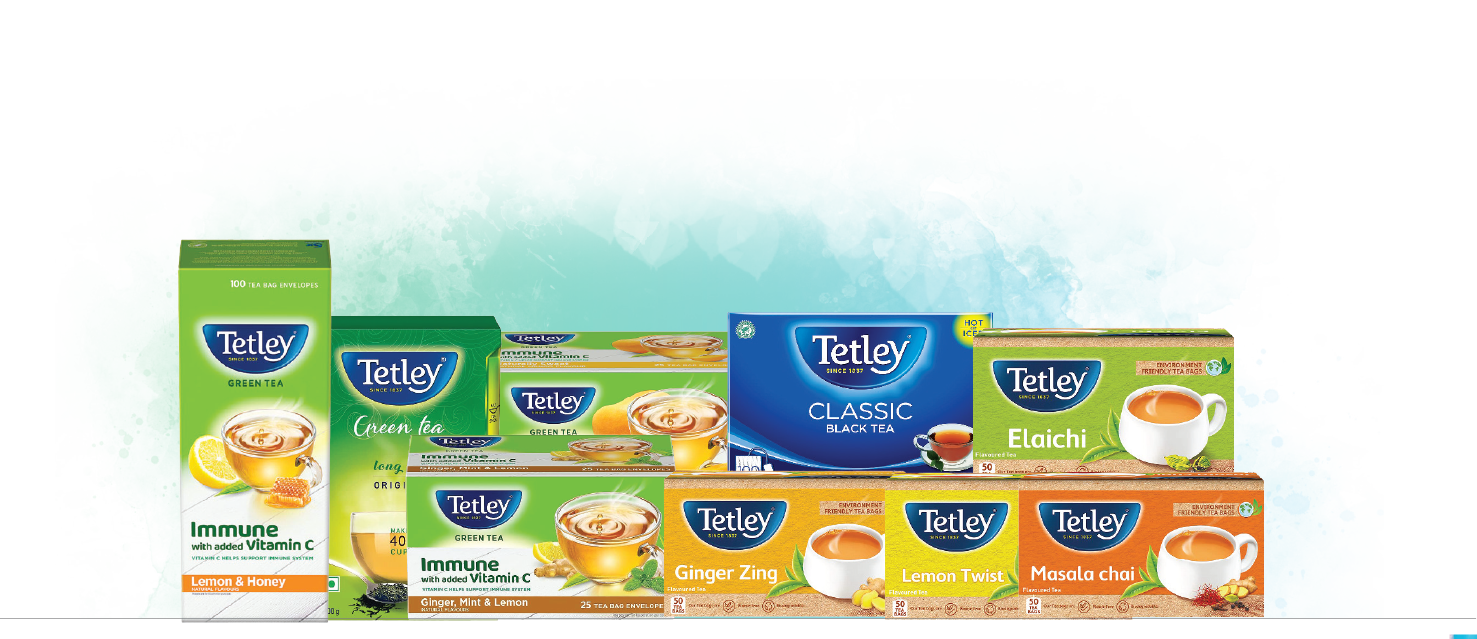
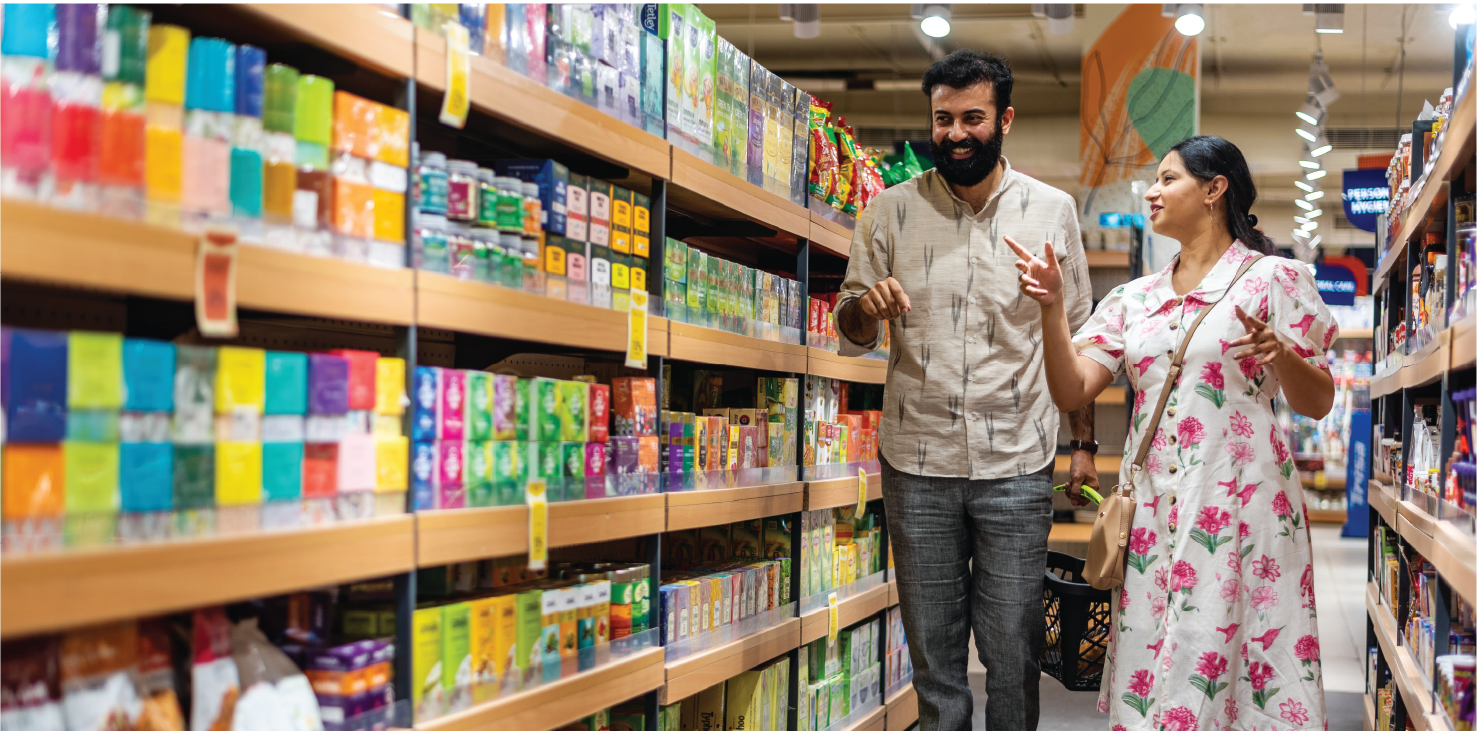
Responsibility towards consumers is one of our core credos. Our products not only meet the highest quality standards, but also cater to the specific nutritional needs and preferences of our consumers. This commitment extends beyond product development and into all facets of our business. An integral part of our consumer-centric approach is our comprehensive 'For Better' Claims Guidelines. Designed with the consumer's needs in mind, these guidelines cover a broad spectrum of claims, from those based on sensory appeal and wholesomeness, to ingredient-specific and nutrient content/function assertions, to packaging or processing claims.

We understand that it is important to support our consumers in their pursuit of a healthy lifestyle. Our mission goes beyond merely creating nutritious products; we are committed to delivering extensive and transparent product information. This commitment extends to offering meaningful and transparent data, such as calorific information, which are pivotal for aiding dietary choices. Upholding this transparency is paramount to preserving consumer trust. As we aim to be a brand that pairs
'nutrition and taste', we are re-evaluating fundamental consumer principles and renewing our packaging to ensure the vitality of our nutritional ethos, all while prioritising taste. Our efforts also extend to amplifying our product- related information regarding nutritional, environmental, and social aspects. Our packs carry all required nutritional information mandated by regulations, we also call out positive ingredients and their benefits (like high in fiber/high in protein etc) on Front of Pack/Back of Pack labelling.
We noticed that fitness-focused products were mostly aimed at men, overlooking women's health needs, even for active & aware consumers aged 18-45-years in India's major cities. To address this gap, we prioritised understanding women's unique nutritional needs, especially protein. Consequently, we introduced Go Fit Plant Protein specifically tailored for this underserved demographic group.
The Go Fit Plant Protein blend is carefully designed to support women's health with essential calcium, Vitamin D2, K2 for bone health, and 13 other crucial vitamins and minerals. In addition to promoting muscle health, it fills women's daily nutrition gaps, providing 50% of daily protein requirements per serving. This product is also enriched with Ayurvedic ingredients such as Tulsi, amla and aloe vera for hair, skin and beauty support and Shatavari, Moringa and Ashwagandha for improving immunity and delivering everyday nutritional advantages. With flavours inspired by nature, TCPL has made healthy choices not just beneficial but also enjoyable. Through this innovative product, TCPL is not just offering alternatives, but also pioneering a shift towards a healthier, more conscious lifestyle. TCPL successfully blended innovation, inclusivity, and sustainability to create the Tata Go Fit Plant protein.

Product stewardship is paramount for robust brand performance. It involves the intricate management of every product stage, from R&D to post-consumer disposal. A central component of this strategy includes producing sustainable products. These are goods that are locally sourced to minimise environmental impact and offer environmental, social, and economic advantages, with a focus on safeguarding public health throughout their lifespan. Our approach to sustainable products includes various elements such as raw material sourcing, manufacturing, packaging, resource efficiency, supplier's ESG measures, and social aspects such as health and well-being.
We innovatively double-fortified salt with two vital micronutrients - iodine and iron. This unique process retains the salt's taste and physical properties while delivering enhanced health benefits and effectively combating micronutrient malnutrition.
Dedicated R&D function with more than 50 professionals to foster our work on for better nutrition
Our R&D teams actively partner with numerous institutions for research purposes and to steer the development of our portfolio.
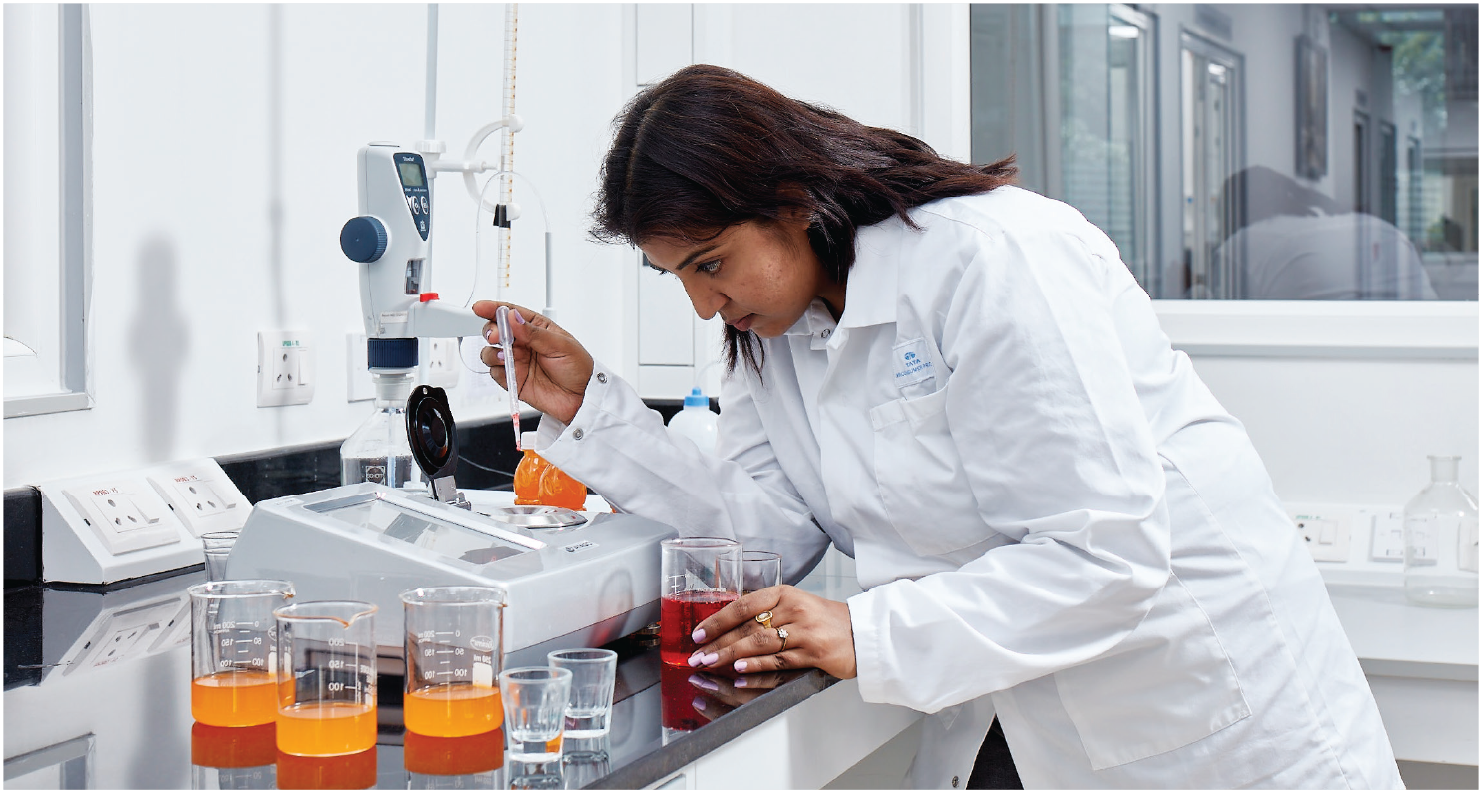
To establish precise nutritional guardrails, it is essential to comprehend the product's role in the daily diet. Our extensive portfolio ranges from primary meals to energy drinks, each product designed to meet specific consumer tastes, convenience, and nutritional needs. We have 10 product categories, including Ready Meals & Side Dishes, Ready to Eat (RTE) Bites, Cereals for Kids and Adults, Spreads & Dressings, Ready to Drink
(RTD) Beverages, Hydration, Leaf Tea, Coffee & Herb, Beverages - Concentrates & Powders, Staples, and Spices & Condiments. These categories, defined based on our current portfolio, are subject to expansion or redefinition as the product range evolves. Our products are strategically categorised under three significant consumer needs: Convenience, Health & Wellness, and Premiumisation.
Our products are strategically categorised under three significant consumer needs:
In FY 2023-24, we successfully added 46 products to our portfolio. 12 of these products were oriented towards convenience, making meal preparation and consumption easier for our customers. Likewise, we offered 16 products dedicated to Health & Wellness, promoting healthier lifestyles. To meet the needs of those seeking gourmet experiences, we introduced 18 food products, broadening our premium range. For instance, Tata Sampann Vermicelli
and Sonnets Easy Pour have been launched in the convenience segment, while Tata Tea Gold Vita, Tata GoFit Plant Protein and Tata Soulfull Millet Granola feature in our health & wellness range. We have also added Tata Coffee Gold Cold Brew and Tata Simply Better Cold-Pressed oils to our premium lines. These launches reaffirm our commitment to nourishing lives while adding a dash of luxury and convenience to everyday meals.
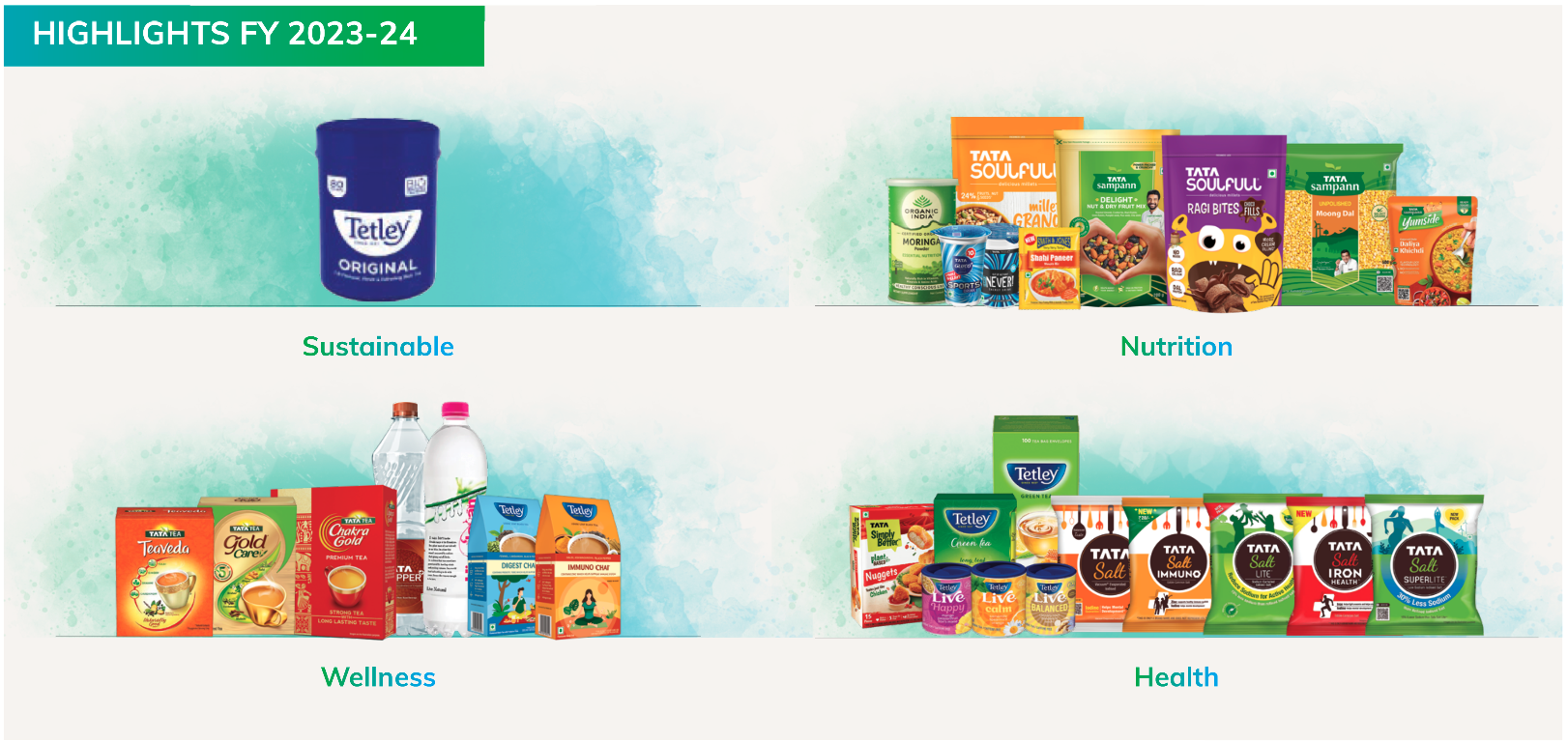
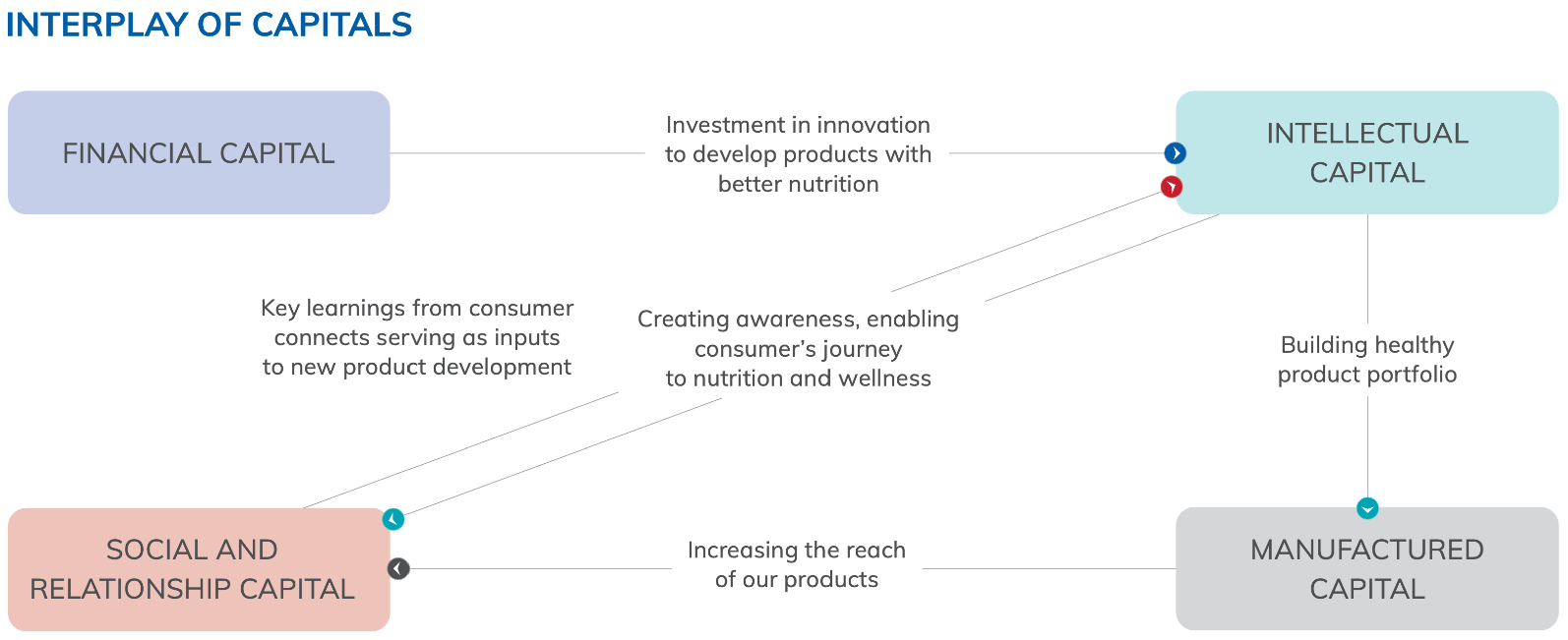
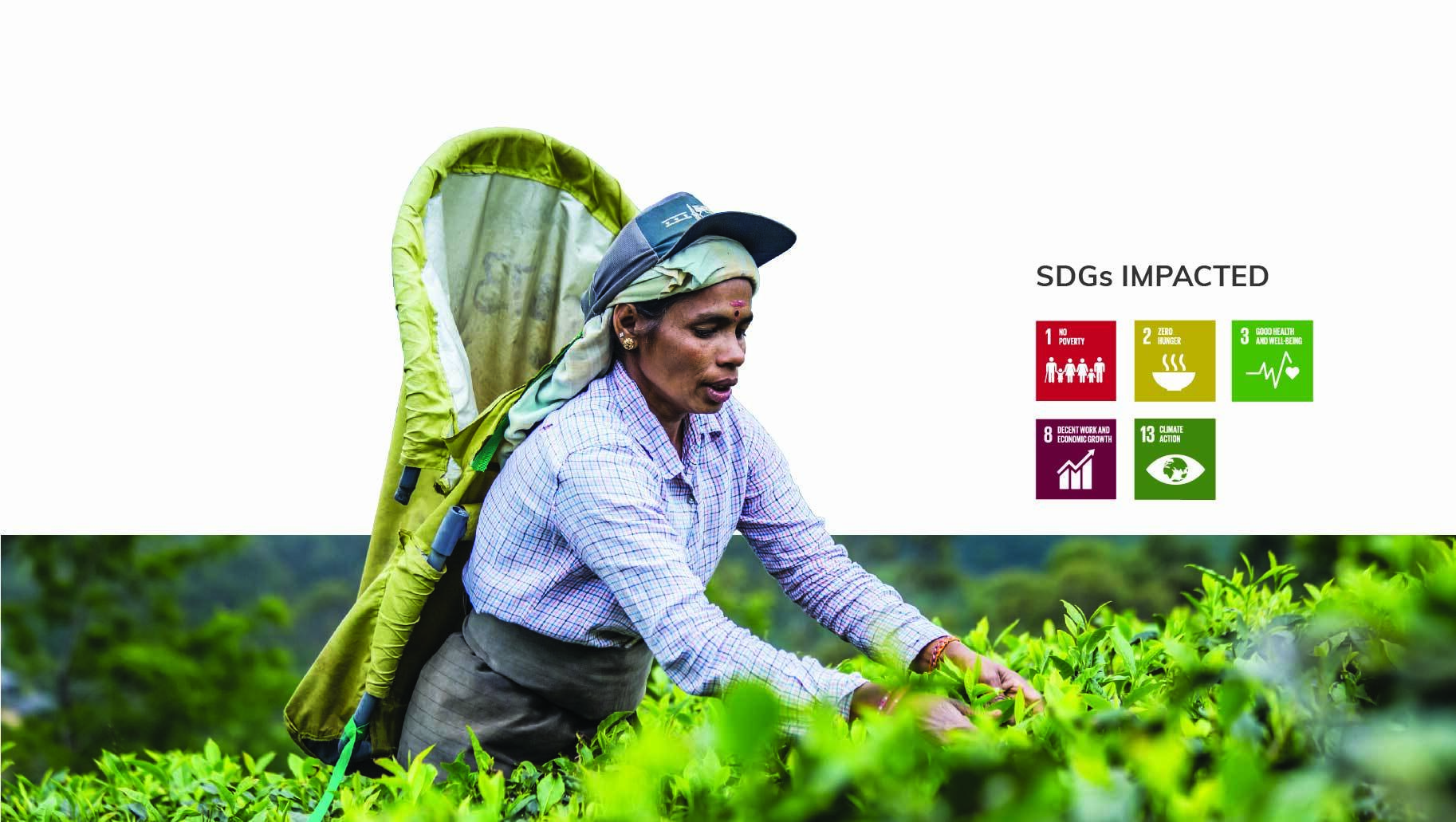

In India, 947 million kg of tea sustainably transformed through 'trustea' initiative till March 2024
60% of tea procured in FY 2024 by TCPL is trustea-certified in India
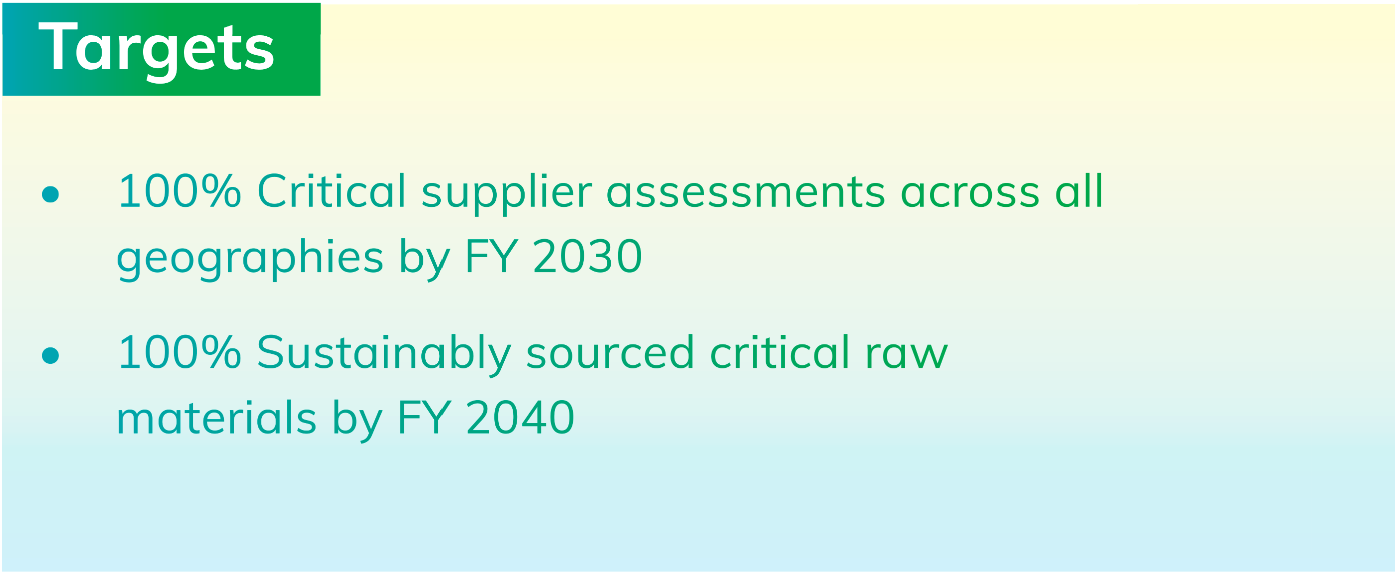
Our approach includes proactive and strategic value chain transformation, which encompasses supplier relationship management, risk management, and the development of sustainable supply chains. Responsible sourcing is integral to our approach, as we consider local sourcing, apply sustainable packaging practices, and focus on quality management. We are committed to upholding human rights, with a specific focus on maintaining high standards in people practices, supported by comprehensive supplier training programmes. Our commitment also extends to preserving nature and biodiversity by endorsing well-established and innovative sustainable agricultural practices.
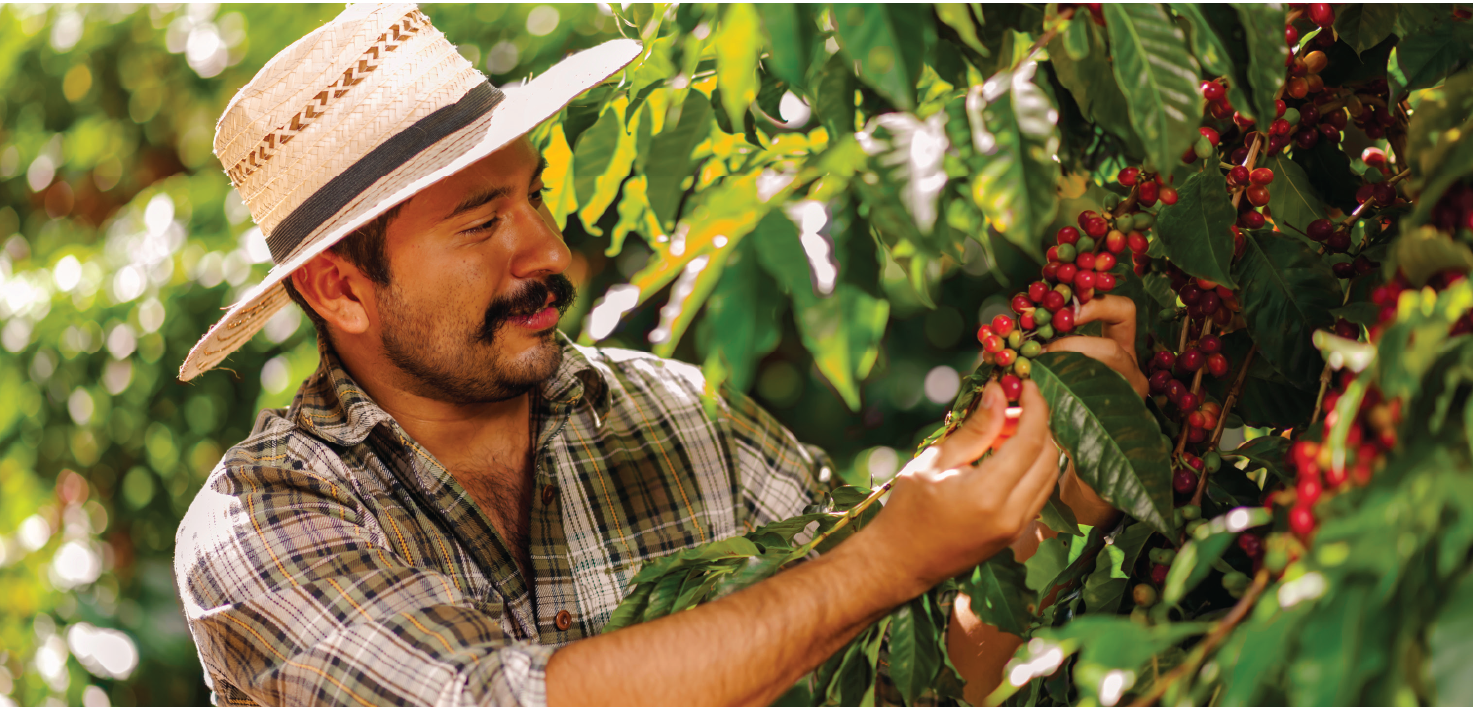
Our initiatives to build a sustainable supply chain framework include elements like the
Supplier
Code
of Conduct, Sustainable Supplier Policy and Green Procurement Policy. We believe in
fostering a
collaborative environment that will encourage the adoption of sustainable practices in our
value
chain.
It is mandatory for our suppliers to adhere to TCPL's Business and Human Rights Policy and
the
Tata Code of Conduct. Suppliers are also encouraged to proactively take steps to identify
ESG
linked opportunities and mitigate risks in their own supply chains. Our Supplier Code of
Conduct (SCoC) mandates that every supplier operates their business ethically and with the
utmost integrity. This code is an integral component of their contracts. It covers aspects
such
as Human Rights, Labour Standards, and Workplace Standards; Anti-Bribery and
Anti-Corruption;
Data Protection, Information Security, Intellectual Property Rights, child labour, forced
labour, health and safety, freedom of association and right to collective bargaining,
avoidance
of discrimination, disciplinary practices, working hours, remuneration, and management
systems.

Currently, supplier screening is conducted systematically by our Internal Quality team, who
physically audit the supplier facilities based on
TCPL's Food Safety Standards. Vendors are scored based on the audit findings and root cause
analyses (RCA); implementation of corrective and preventive action plans (CAPA), jointly
developed for addressing identified gaps, are verified periodically. The approval of the
vendor
is based on the scores achieved, and a report is provided to each vendor once the process is
concluded. In terms of the ESG aspects, we ensure that all our strategic suppliers, those
involved in primary packaging, possess ISO and BRC certifications.
This serves as the initial level of screening and
ESG considerations are encompassed within these certifications
As part of our sustainable supply chain strategy,
we have initiated the process of incorporating environmental, social, and governance (ESG)
related parameters into our supplier assessment process. This year, we began categorisation
of
our critical suppliers.
We define a critical supplier as one with whom we have a significant value-based business
relation from procuring raw materials for our offerings or other related materials like
packaging. The other criterion for defining criticality is engagements based on exclusivity
of supplies. Our critical supplier base forms a significant component of our value chain and
is integral to our business growth and sustainability.
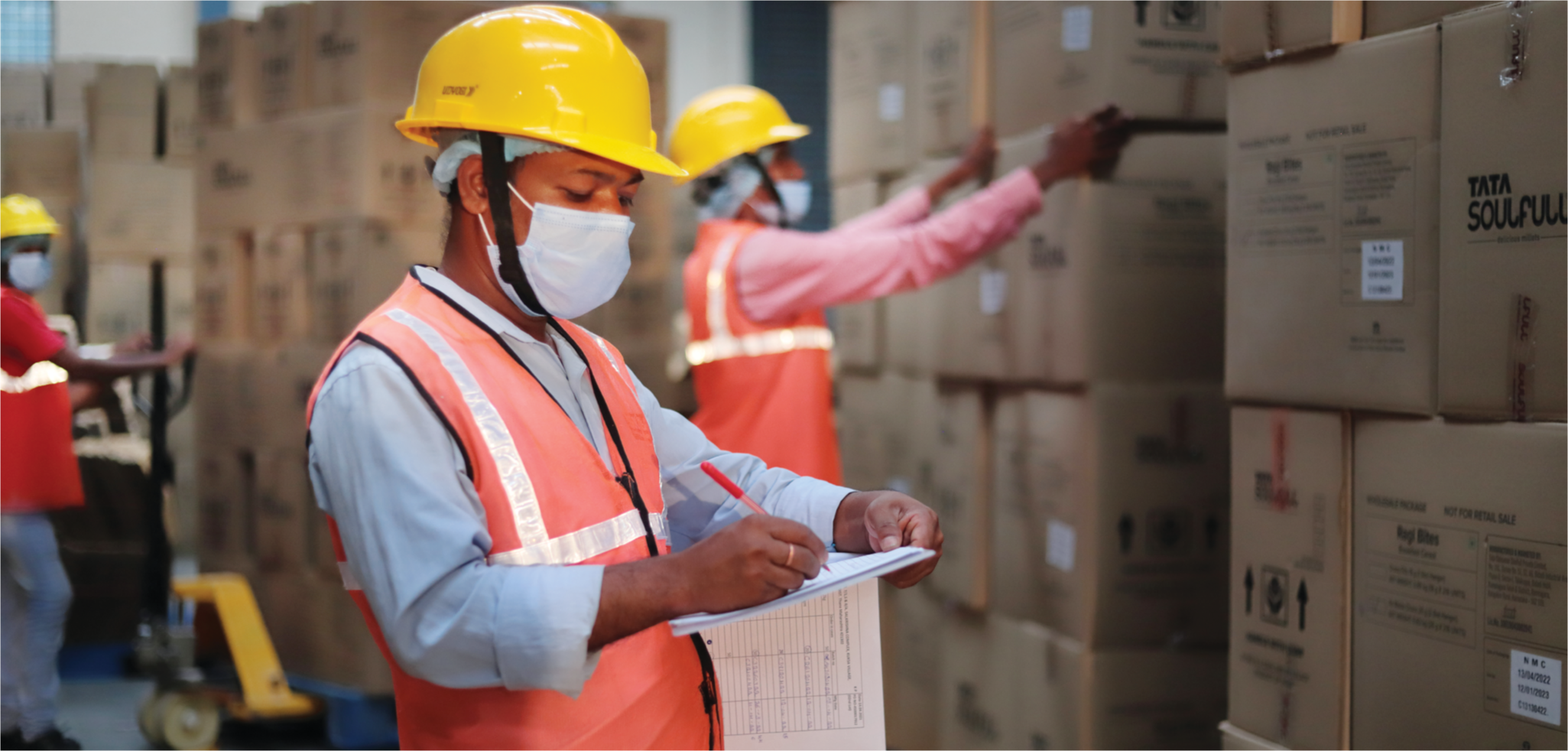
At TCPL, our dedication to sustainable sourcing extends to our tea, coffee, water, salt and food
offerings. We aspire to base our sourcing on the principles of sustainability and strive to
ensure
that the supply chain remains true to this value. As a founding member of the Ethical Tea
Partnership (ETP), we are committed to creating a vibrant tea industry that upholds social and
environmental sustainability.
Our sustainable sourcing strategy follows a two-pronged approach - the source materials not only
need to be sustainable, but should also be produced responsibly. This approach ensures that the
resources we use leave a minimal environmental footprint and are produced ethically, adhering to
fair labour and manufacturing practices, in line with our long-term sustainability goals.

We are committed to ethical sourcing to meet increasing demand for sustainable products and to maintain our highly valued sustainability credentials. We currently have a network of approximately 900 suppliers, out of which over 250 are based locally. By engaging vendors from local areas, we actively foster job creation and contribute to the economic growth within our communities. Additionally, this localised approach to sourcing also plays a significant role in reducing the emissions associated with long-distance transportation, thus minimising our carbon footprint emanating from supply chain operations.
We mandate all our packaging suppliers to follow sustainable sourcing standards. By clearly outlining our expectations for social, ethical, and environmental responsibility in our purchase orders and contracts, we ensure that our vendors align with our commitment to sustainability. This encompasses supplying food-grade packing material while ensuring continuity and the ability to meet our packaging material needs. We allocate about approximately 98% of our primary packaging material budgets locally within India.
The superior quality of our products and the trust instilled in our brands have been pivotal in securing and maintaining our leadership status across portfolio categories. All our products are produced and packaged in cutting-edge facilities that, not only adhere to, but also surpass global food safety norms and regulations. We undertake ongoing quality enhancement initiatives, beginning with the sourcing stage, to uphold a standard of quality that resonates with and is valued by our consumers.
Our efforts to preserve natural resources and promote biodiversity play a key role in encouraging sustainable agricultural practices; this delivers higher yields to the growers/ farmers and better-quality raw materials to us. Through our partnerships with organisations like trustea and Rainforest Alliance, we promote soil health, ensure that our growers minimise chemical inputs in their agricultural practices and respect the interplay between people and the natural environment in their surroundings.
Tata Consumer is one of the founding members of trustea and champions sustainable
agriculture. The trustea
Code immensely benefits both the environment and tea farmers. Recognised as the world's
largest sustainable agriculture certification initiative, trustea is playing a
significant
role in transforming the Indian tea industry.
As a part of its 'For Better Sourcing' pillar, TCPL has been actively procuring trustea
certified tea in India. 60% of tea procured in India by TCPL in FY2024 is trustea
certified.
The trustea programme has cumulatively verified more than 947 million kg of tea till
March
2024, which is over 70% of tea sold in the Indian market. Since inception, operations of
about 1,30,250 small tea growers have been verified and 6.8 Lakhs tea estate workers
have
been positively impacted through the trustea programme.
We have collaborated with the Rainforest Alliance, a non-profit entity committed to the conservation of biodiversity and the promotion of sustainable livelihoods. This partnership also allows us to address specific issues relating to sustainability in the tea & coffee plantations. We are proud to state that 100% of Tetley tea in our international markets is Rainforest Alliance certified.
The Ethical Tea Partnership (ETP) is a membership organisation comprising tea marketing companies, development organisations, and governments to enhance the well-being of tea workers, farmers, and their surroundings. Its objective is to ensure long-term, systemic transformations across three key areas in the tea industry: economics, equality, and environment, while also providing support to communities through programs in Africa and Asia. Being one of the founding members, TCPL has maintained close partnerships with several member organisations for many years.
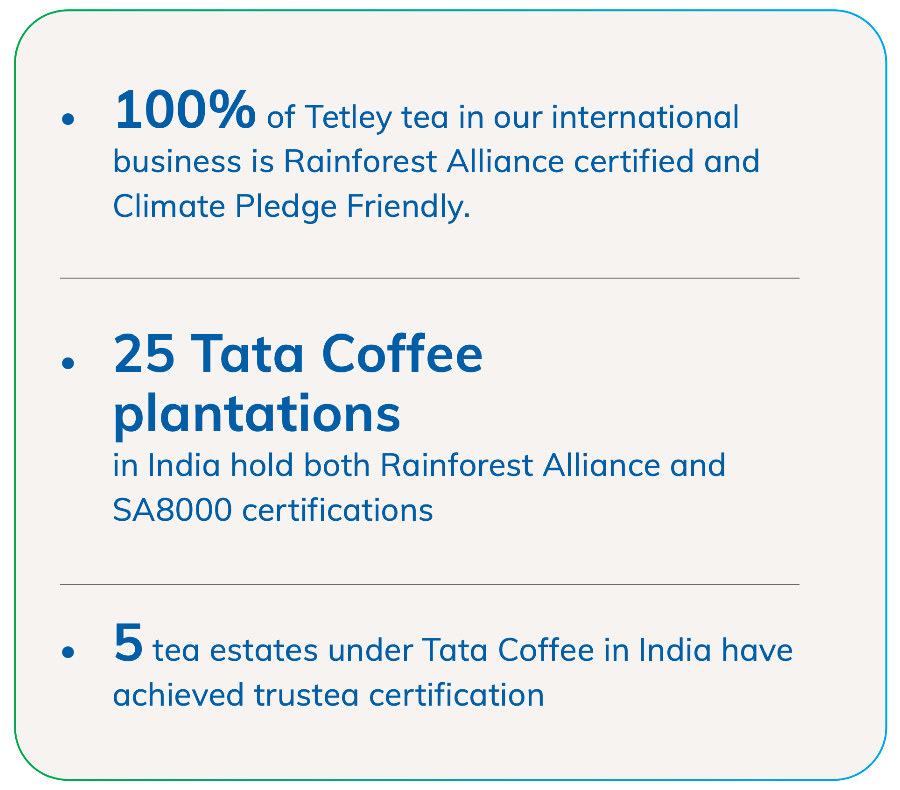
The Executive Management comprising senior management representatives regularly overseas the
implementation
of our supplier ESG program and suppliers’ adherence to established ESG principles.
Additionally, our purchasing practices are systematically assessed to maintain their
alignment
with the Supplier Code of Conduct. This cycle of continual review allows us to uphold
consistent
standards of ethical and sustainable behaviour in our interactions
with suppliers.
To enhance collaborations with our packaging material providers, we have instituted a
biannual
Supplier Relationship Management (SRM) programme for all
our primary packaging suppliers and indirect material suppliers, with the aim of improving
cost
management, strengthening governance, encouraging innovation and enhancing the visibility of
service and performance.
The SRM process employs a scoring system based on various performance indicators. This
process
takes place both on-site and off-site. Whenever Opportunities for Improvement (OFIs) are
identified, TCPL suggests action plans for suppliers to enhance scores in the subsequent
audit
cycles. This continuous feedback and improvement mechanism is a key part of our supplier
relationships. Each indicator carries specific weightage: cost at 15%, service at 30%,
quality
and capability at 30%, and innovation and ethical supply at 25%. In FY 2023-24, we have
included
34 suppliers from various packaging segments in this SRM initiative.
Besides our Supplier Relationship Management program, we also conduct supplier-related
trainings
including those through trustea. With the revision of trustea Code in July 2023,
sustainability
challenges were addressed, focusing on climate and energy management and initiatives like
regenerative agriculture. This involves intensive classroom training, on-ground work,
capacity
building, digitisation and alignment with current trends for our partners and certification
bodies. Our educational programmes provide thorough understanding of our 'Tata Code of
Conduct'
to ensure alignment with our corporate ethos. We also communicate 'ABAC Policy Guidelines &
Thresholds' to instil knowledge on anti-bribery and
anti-corruption policies.
In order to effectively manage supplier grievances, we have established a comprehensive 'Grievance Management Process'. As per our Supplier Code of Conduct (SCoC), if suppliers uncover significant violations of this Code's provisions, either by their own staff or by other third parties, including TCPL staff, they are strongly urged to report such incidents. Notifications are made through the TCP Ethics & Compliance Helpline, in accordance with our established Ethics & Compliance Helpline process. In our ongoing efforts to equip our suppliers for various potential outcomes, we review 'Sample Scenarios with Consequences.'' This forms part of our supplier outreach program, where we conduct virtual sessions to raise awareness about anti-bribery and anti-corruption (ABAC) measures and Tata Code of Conduct (TCOC) guidelines, along with repercussions for non-compliance. Further, we include directives on channel details and methods to raise concerns relating to supplier Code of Conduct, reinforcing our dedication to maintaining transparency with our suppliers.

TCPL's objective is to secure complete transparency for every product offered, extending all the way to the last mile of the supply chain. This aims to give us more control and enhanced visibility over our operations. As a result, we are in a better position to substantially improve our environmental footprint and enhance our social impact. Moreover, this approach also helps us maintain a robust, uninterrupted supply chain. To continue to drive ethical and responsible practices in our global supply chains we have joined SEDEX which allows members to share data on their supply chains and operations with each other. This means we are proactively increasing traceability, identifying managing and mitigating business and supply chain risks through data driven insights.
End-to-end traceability in the tea industry refers
to the tracking of tea's journey from being a leaf in
a farm to a packaged product sold to consumers.
This includes every stage of its lifecycle such as harvesting, processing, packaging,
transporting, and ultimately sale.
To enhance traceability, trustea has launched a suite of digital tracking solutions. The
innovative Tracetea system, available as an Android app and web portal, enables
comprehensive tea traceability. Tracetea MAP facilitates detailed data analysis of
estate
and Small Tea Grower (STG) supply chains, deforestation impacts, and program effects.
Additionally, the trustea Code Management System covers digital governance across all
program partners, guaranteeing adherence to certification standards.
These digital solutions have enabled tea tracking from the farmer to the invoice stage, assessment of environmental and social impact, digitisation of trustea certification, and online training. After a successful pilot in three locations, the initiatives were expanded nationally, covering 70,490 Small Tea Growers, and engaging 110 units across four regions. This has boosted transparency and traceability in the tea supply chain, improved efficiency of trustea certification, and enhanced brand trust, assuring our customers of ethically sourced, superior-quality tea.
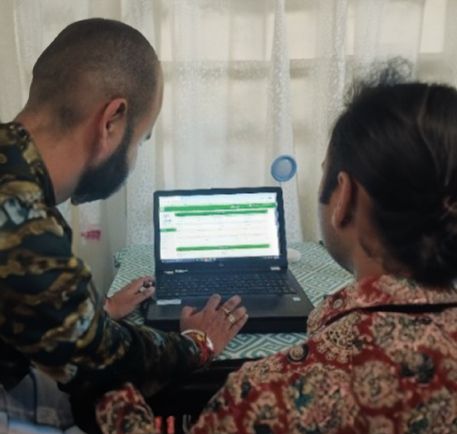
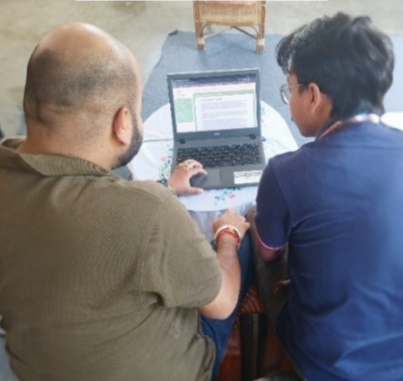
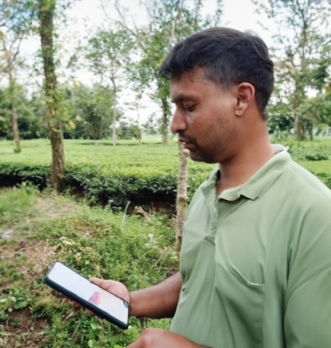
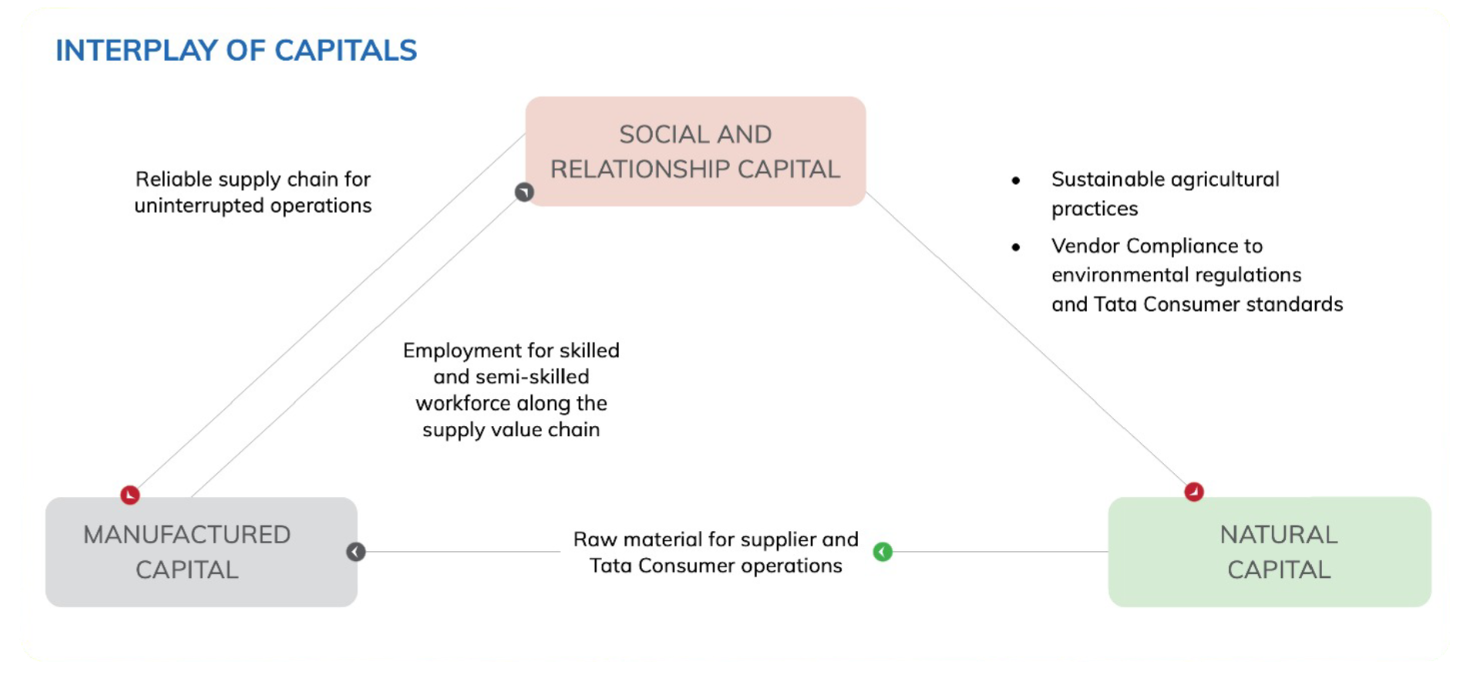
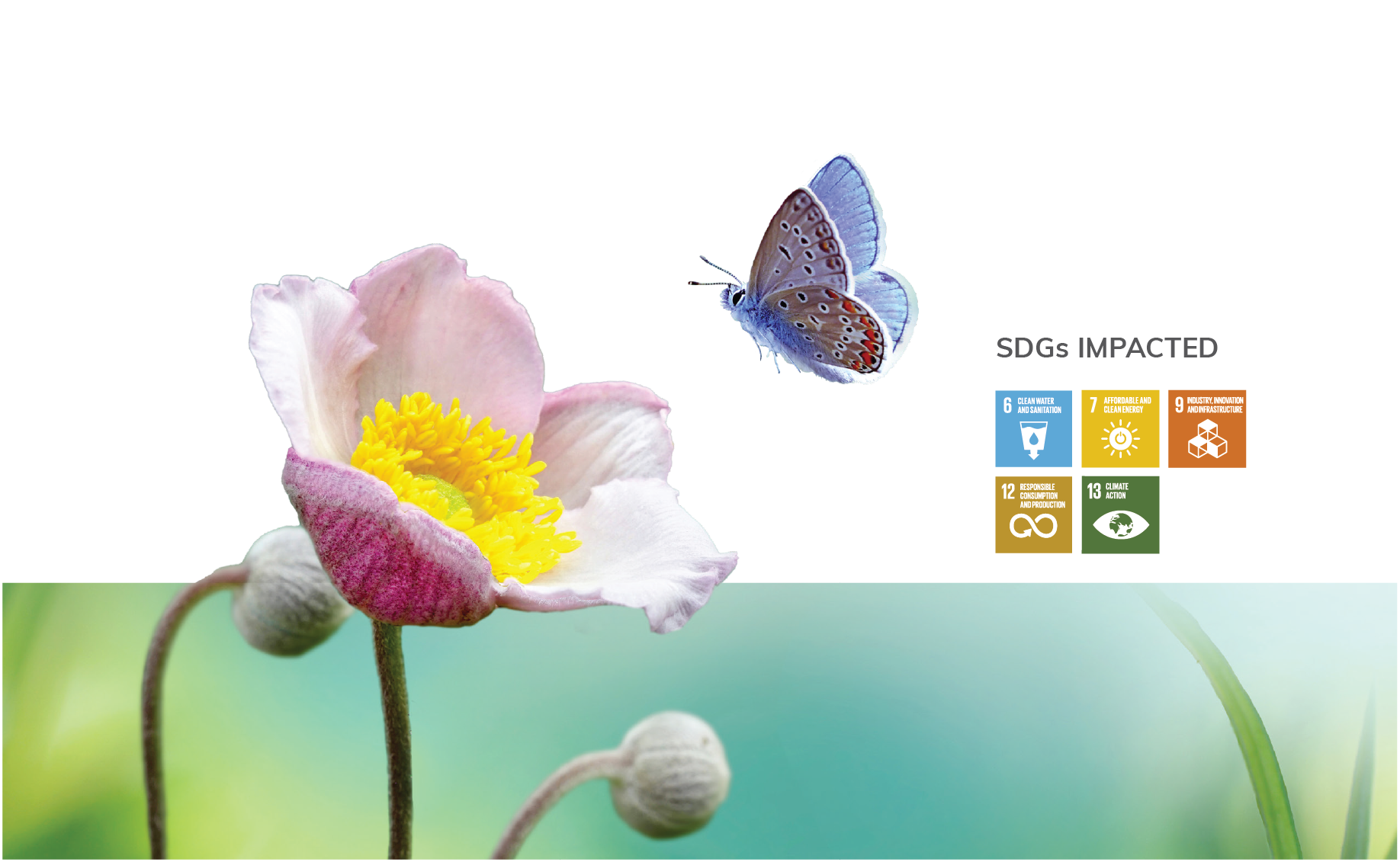

 Natural
Natural  Intellectual
Intellectual  Manufactured
Manufactured 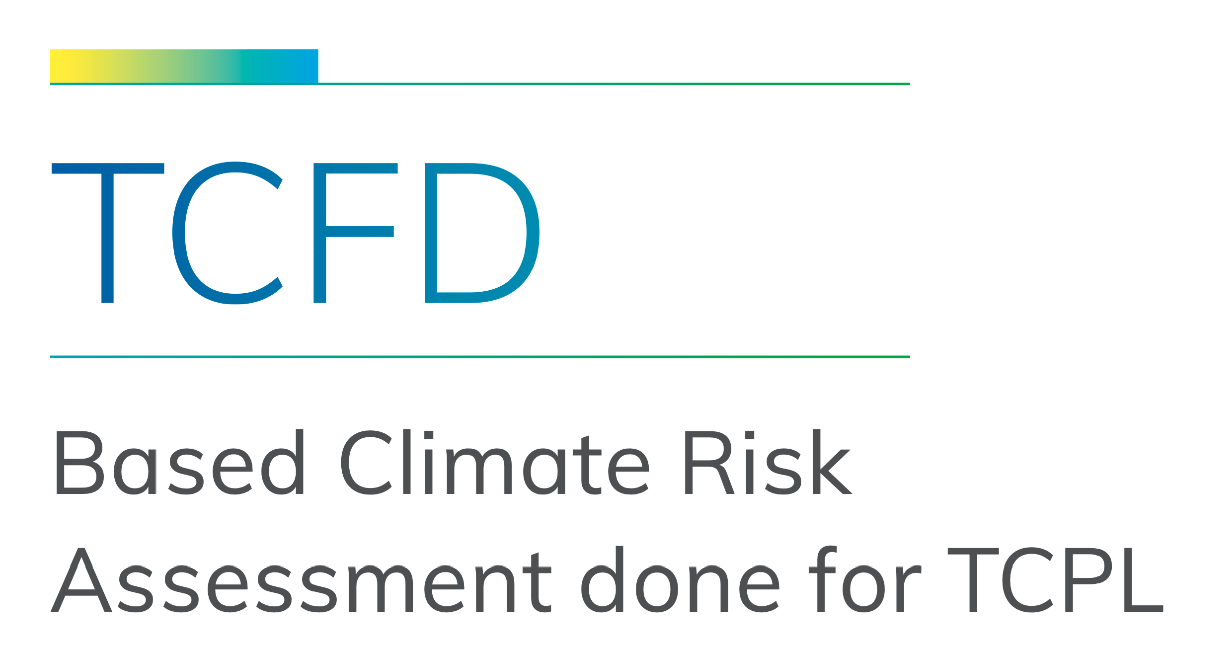
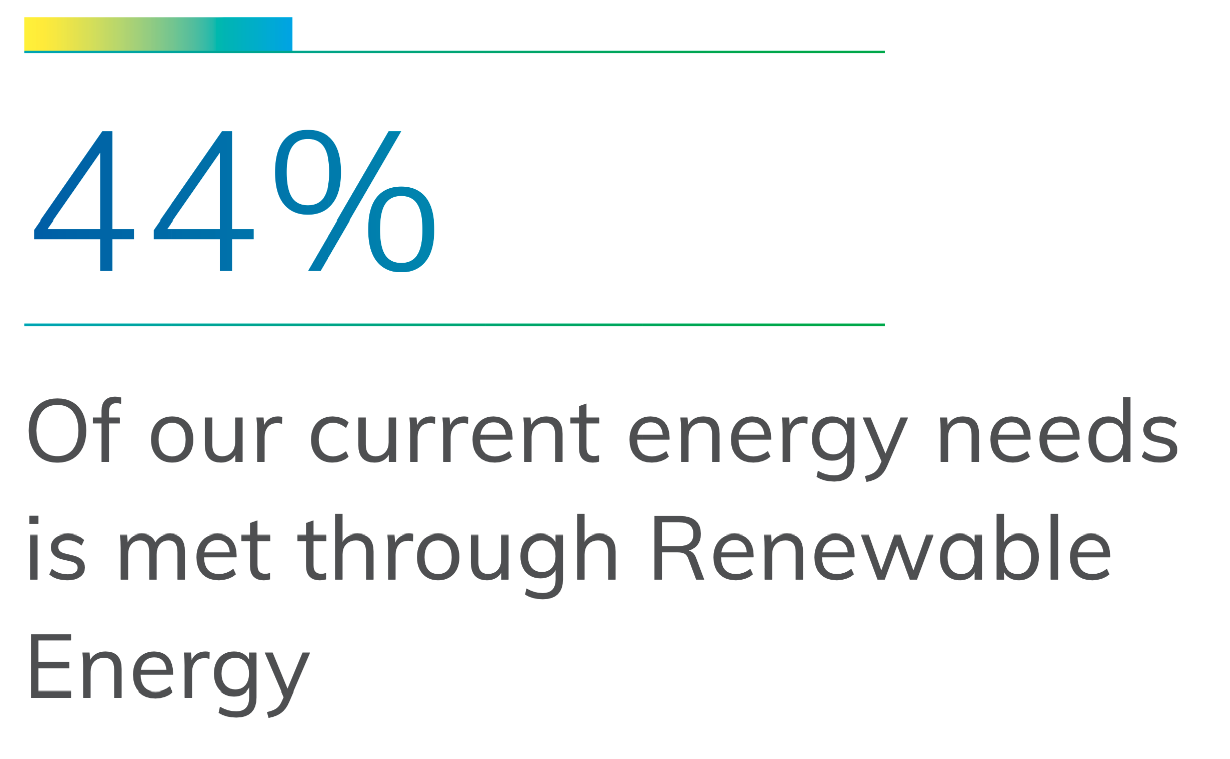
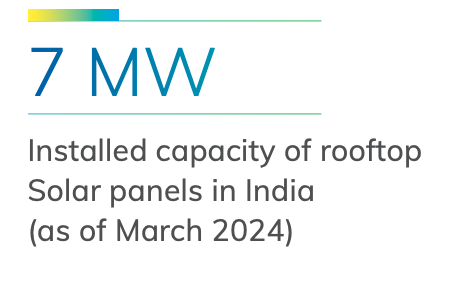
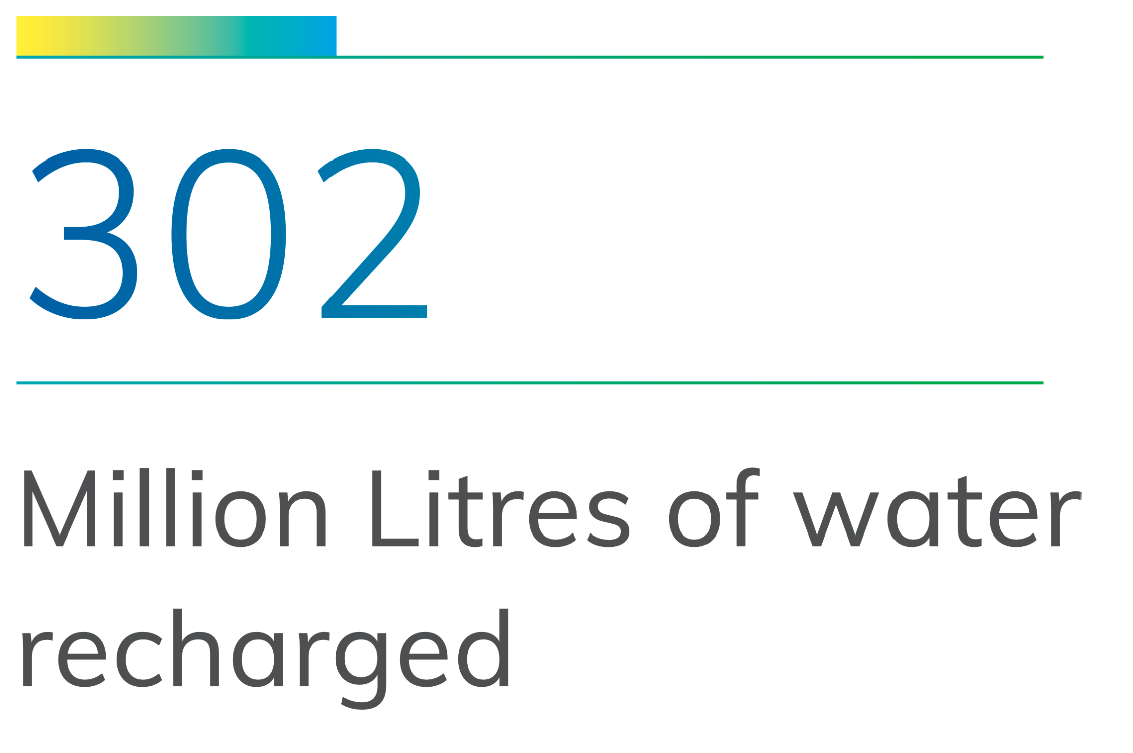
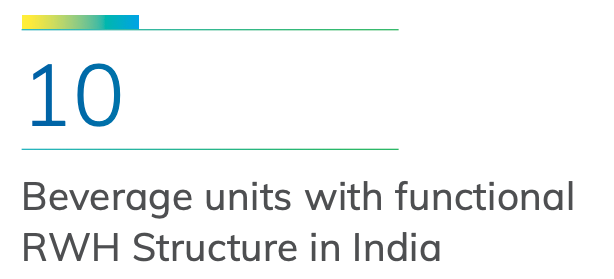
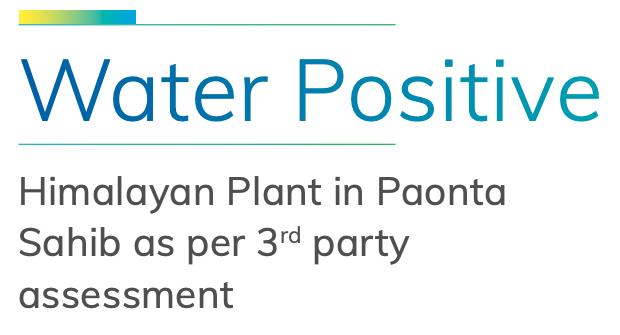
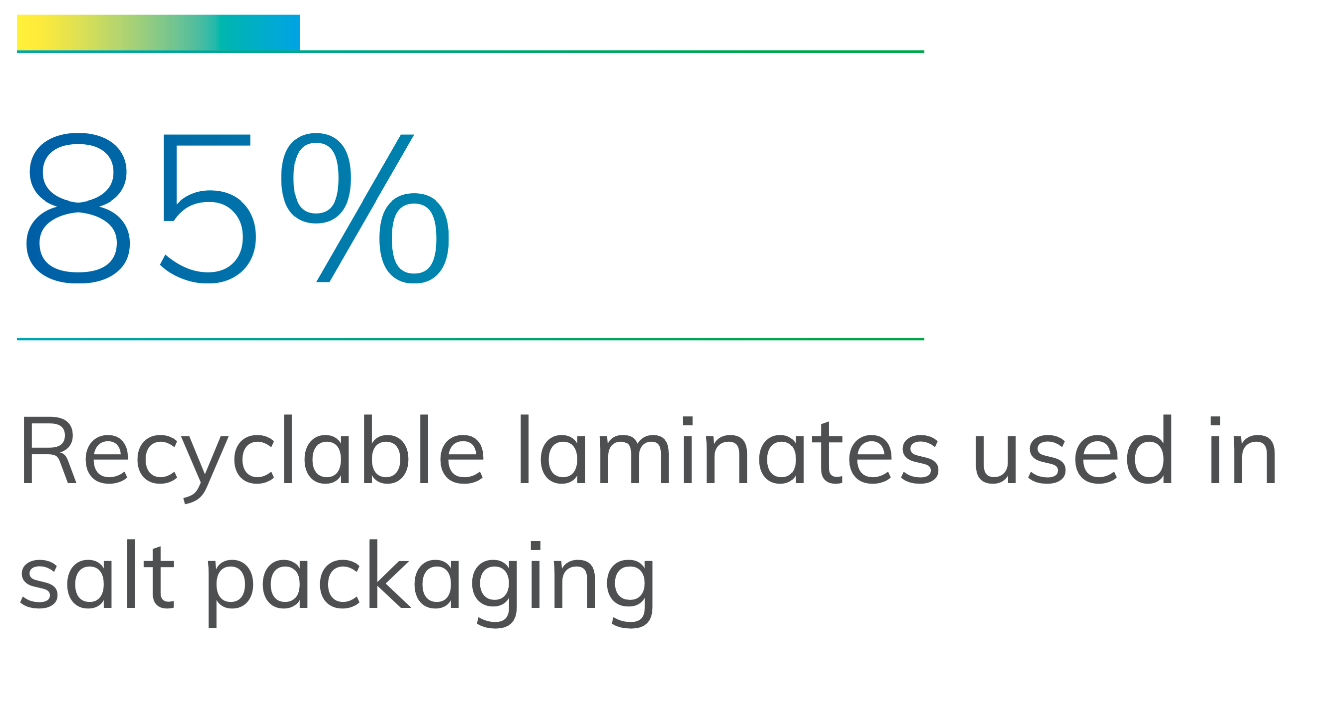
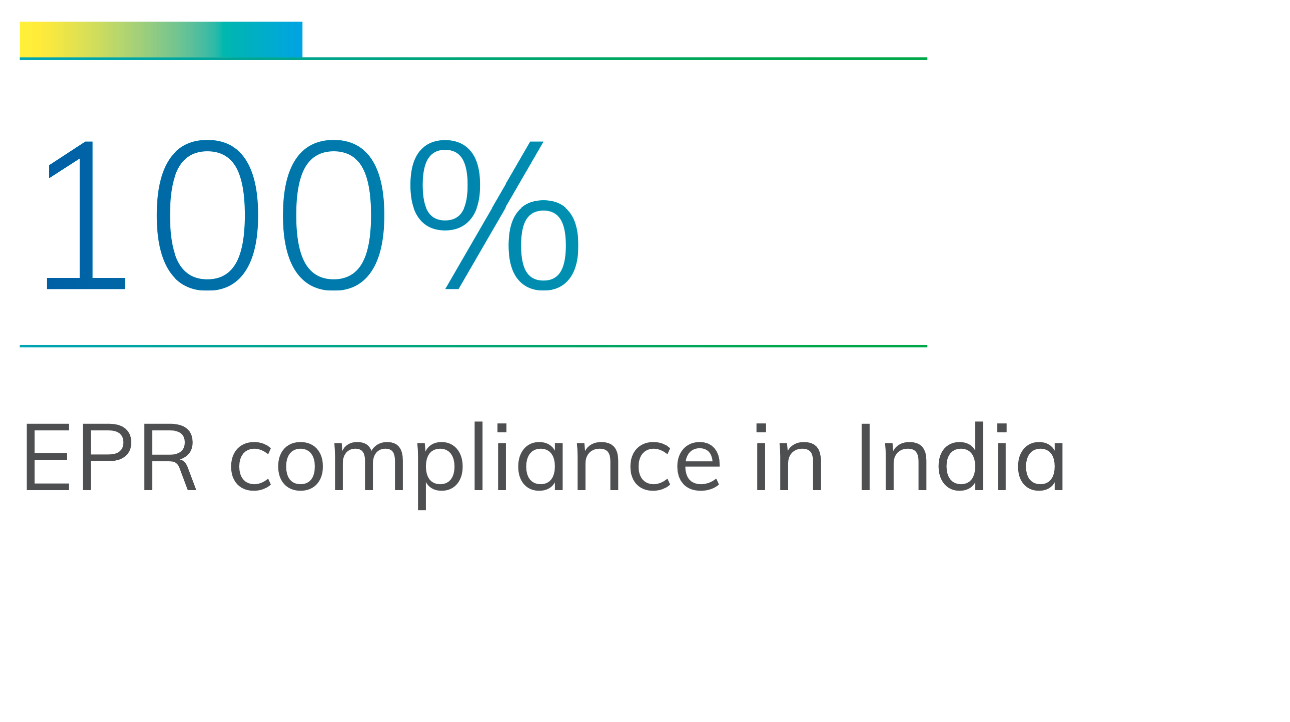
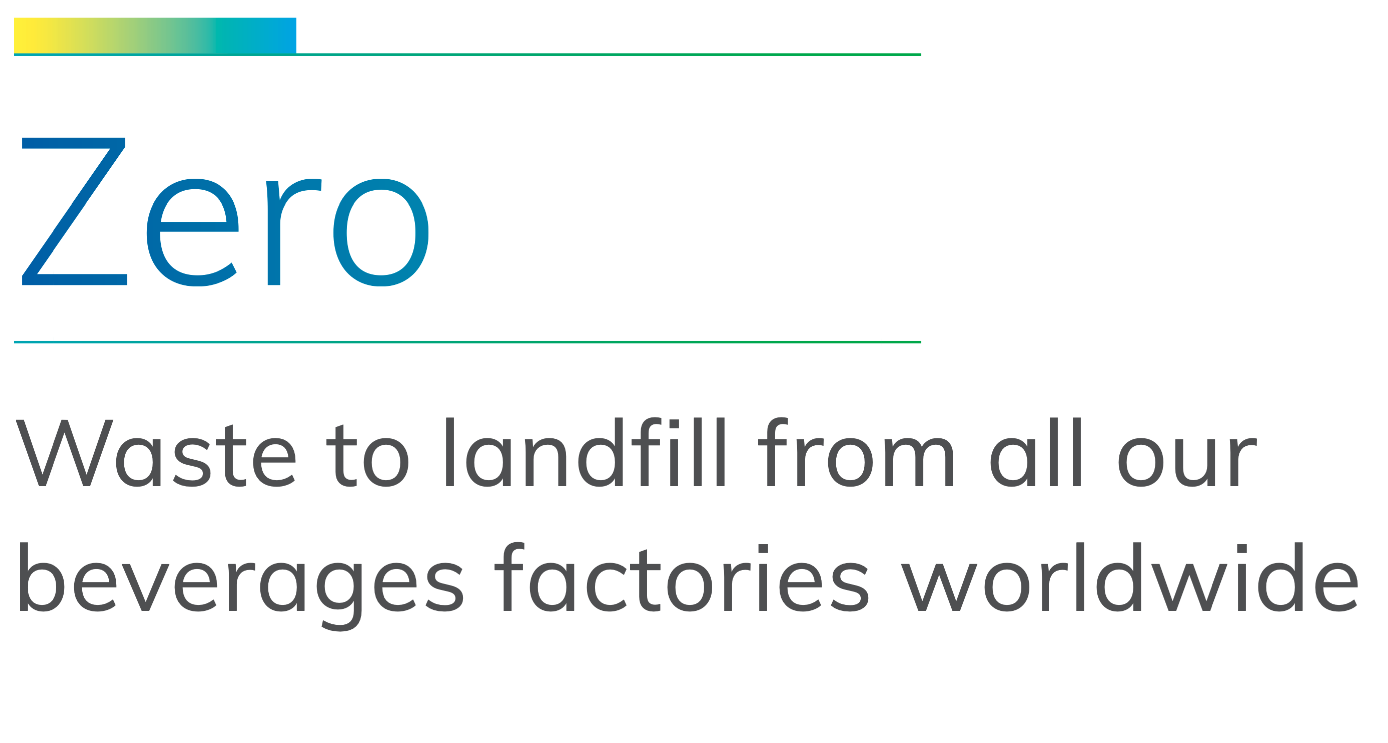
Promote clean energy, replenish water, preserve biodiversity, pioneer circular economy
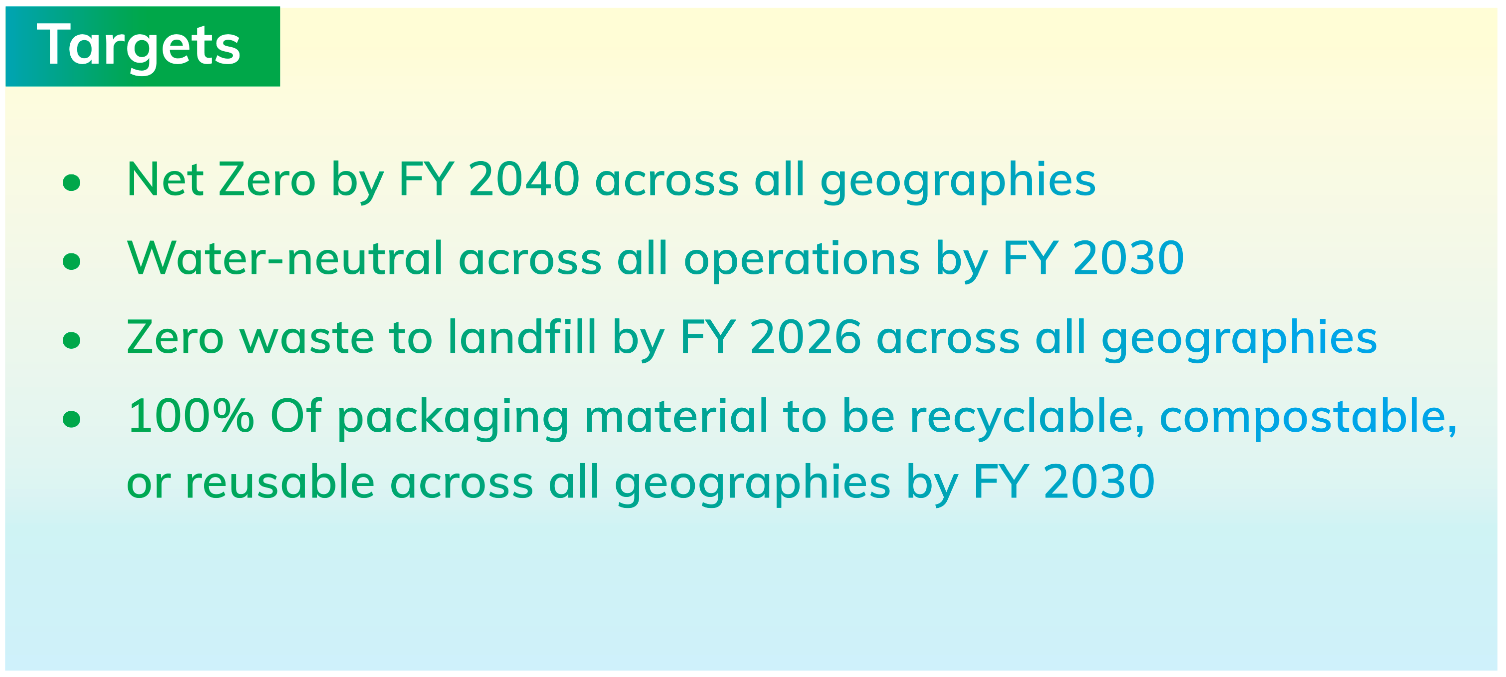
In FY 2023-24, we published our Environment Policy which guides our work in this pillar. Our initiatives cover many critical areas, including achieving Net Zero through promotion of energy efficiency and use of green energy sources; being resource efficient, aiming for water neutrality and 100% recyclable packaging. Our goal is not just to minimise waste, but to aim for zero waste to landfill. Additionally, protecting biodiversity and preserving nature form an integral part of this commitment. We are committed to continuously looking for better ways to operate in a manner respectful to the planet and its resource limits.

* Note: Scope 1, 2 and 3 emissions data are under verification. The FY 2023-24 performance includes emissions from Tata Coffee Ltd. which was merged with TCPL in the reporting year.
We aim to achieve Net Zero emissions by 2040 and are undertaking concerted efforts to reduce our emissions footprint. We aim to achieve this by implementing robust accounting & mitigation strategies for all our emissions, including direct and indirect greenhouse gas emissions, categorised under Scope 1, 2, and 3.
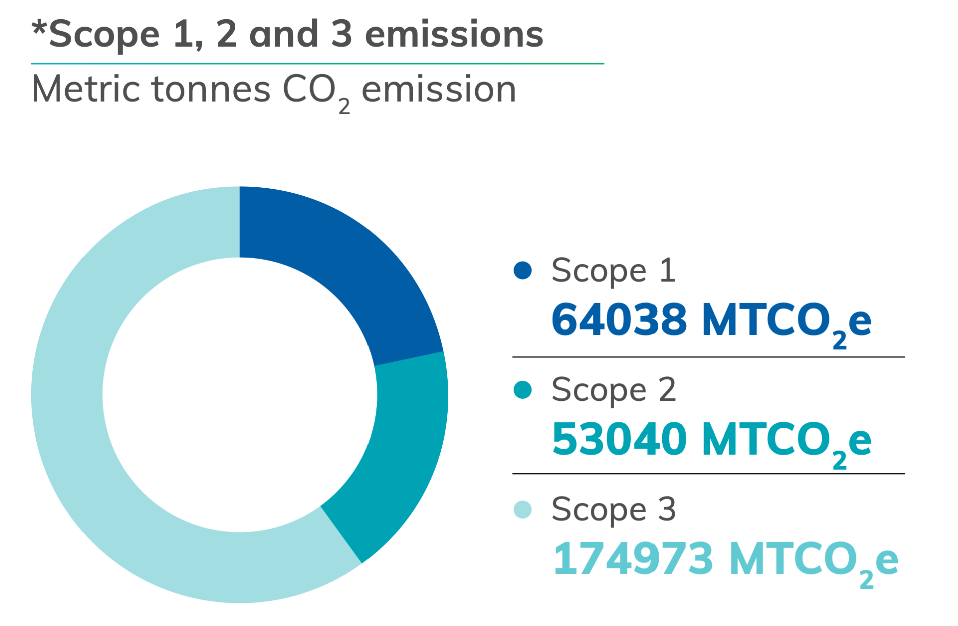
At TCPL, we are committed to responsible energy and emissions management across our operations.
Our
direct emissions stem from the use of fuels like biomass, diesel, petrol, furnace oil, coal,
LPG,
and kerosene, as well as refrigerants used in our processes. In the reporting year 47% of our
direct
energy requirement was met by bio-based fuels, such as fire-wood, biomass pellets, spent tea
waste,
briquettes and husk, reflecting our dedication to environment friendly energy solutions.
Our indirect energy needs are met through grid electricity. We proactively build capacity and
utilise solar power in
off-grid mode to meet part of our power requirements. In FY 2023-24, 27% of power demand was met
by
renewable sources such as wind and solar. We are committed to boosting the share of renewable
energy
to 35% by
FY 2025-26. We also aim to achieve carbon neutrality for Scope 1 and Scope 2 emissions across
all
regions by
FY 2025-26.
To foster efficiency in our operations, multiple initiatives have been incorporated at our
operating
locations, including the installation of new multitrack packing machines, LED lights, motor
upgrades, and more. This year, we also put out our Energy Conservation Policy and commenced our
journey on ISO 50001 certification.
To effectively address climate change risks, we have implemented the recommendations of the Task
Force on Climate-related Financial Disclosures ('TCFD') and have adopted a climate risk
assessment
framework. The core objective of our climate risk assessment framework is to enable the company
assess and mitigate both physical and transition risks.
Major risks under physical and transitional categories have been identified in alignment with
the
TCFD recommendations. Through a qualitative and quantitative assessment, we have mapped these
risks
to each business unit at TCPL. We also conducted stakeholder interactions with all the business
and
department heads to validate these risks through a 4-factor Likert scale.
Comprehensive mitigation strategies and contingency plans addressing these risks have been
seamlessly merged into the company's overarching long-term strategy and Enterprise Risk
Management
(ERM) framework.
Prudent use of resources to minimise waste, as well as, safe and scientific disposal of waste generated, remain integral to our manufacturing processes. Our target is to become zero waste to landfill across our entire operations by FY 2025-26. All our beverage factories across the globe have achieved this status already. Expanding on this effort, we are also focusing on managing food loss effectively. Products failing to meet our stringent quality standards or reaching their expiry, are repurposed into animal feed, ensuring a holistic waste management process that does not strain the natural environment. To further this commitment, we collaborate with authorised waste collectors and recyclers, as their support is integral to our waste management endeavours.
As a part of the sustainability agenda, TCPL undertook Life Cycle Assessment (LCA) for tea, it
being
one of TCPL's major revenue products. The study was conducted as per the ISO 14040/44 standards
for
a cradle to grave boundary of Tea leaves. It included raw materials supply, upstream
transportation,
manufacturing process, electricity and fuel consumption within TCPL facility, and packaging of
the
products, Use Phase and End-of-life (EoL).
The LCA study has been able to provide directional inputs on our product footprint, especially
from
a Scope 3 perspective. As an entity with a significant Scope 3 emissions, we have been able to
arrive at a materiality analysis on Scope 3 categories for the Business. This materiality
outcome
has been also independently verified by a 3 party and will help us in bettering our
decarbonisation
pathways.
We aim to become water neutral across geographies by 2030. Water use efficiency and conservation
figures prominently in our strategy, given that water is in our products and used in our
production
processes. With water scarcity being a significant concern in many geographies, assessing and
managing water risks is crucial for ensuring the sustainability and resilience of our
operations.
With this understanding, in FY 2023-24, we have undertaken a detailed water risk assessment to
identify opportunities for water efficiency improvements covering all our production operations.
Adhering to the Climate Disclosure Standards Board (CDSB) Framework for disclosing water-related
information and assessing water risks is an essential
step in our commitment to enhancing the transparency of our operations concerning water
management
practices. This aligns with our overarching goal of adopting a long- term perspective that
prioritises the sustainability of our reliance on water resources.
We have strengthened our water risk resilience by conducting water risk assessments for our
Plantations, NourishCo and RTD business segments, using appropriate third-party tools, such as
WRI
aqueduct, WWF water risk filter, etc.

In our commitment to responsible water consumption, we strive to significantly reduce our water usage ratio continually. Recognising the interconnectedness of water conservation, cost-efficiency, and environmental responsibility, our efforts focus on modifying processes, reusing water, and implementing the 3R formula - Reduce, Reuse, and Recycle. A pivotal starting point in this direction was the modification of the P&ID for the filler rinsing and filling process, minimising water waste from pressure fluctuations and stoppages. We maximised water reuse by collecting, filtering, and redirecting water from rinsing and filling to utility functions, resulting in substantial freshwater savings. All process wastewater was channelled into an Effluent Treatment Plant (ETP) and recycled for supplementary applications like gardening and irrigation, achieving zero treated water discharge. This strategic 3R implementation led to a remarkable improvement in water usage ratio, from 4 to 2.6 L/L, saving approximately 50KL per day and marking a significant stride toward environmental sustainability.

We contribute to safeguarding biodiversity, particularly
in hotspots and forest areas situated close to our subsidiary and associate companies'
plantations
in Coorg, Munnar, and Assam. Our conservation strategies include protecting forest regions from
human interference, nature-centric approaches that encompass projects like ecosystem
restoration,
safeguarding ecosystems, and addressing ecosystem-specific concerns.
Some of Tata Coffee's biodiversity conservation projects include:

As founding member of the India Plastics Pact, as well
as an active member in both the UK and EU Plastics Pacts, we are committed to sustainable
management
of packaging. With a sizeable presence in the advisory committees and Collaborative Action
Groups (CAGs), Tata Consumer's representatives actively contribute to the development of
strategies for sustainable packaging management. Amidst prevailing challenges such as cost
management, market performance, consumer protection, and waste disposal, our objective is to
produce packaging that is not only fit-for-purpose, but also comprised of materials that are
either recyclable or reusable post usage. Our aim is to ensure that by fiscal year 2026, 70%
of
our packaging materials across all regions will be either recyclable, compostable or
reusable.
Tetley is recognised for maintaining high social and environmental standards which are
aligned
with the overarching objectives of the Tata organisation. Tetley has also been undertaking a
host of pioneering measures promoting circular economy principles.
In India, we are fully compliant with the extended producer responsibility (EPR) requirements since 2018. Partnering with designated waste producer responsible organisations (PROs) in several states and Union Territories, we recover the equivalent of 100% of the packaging used for our Beverages, Foods, and RTD divisions.
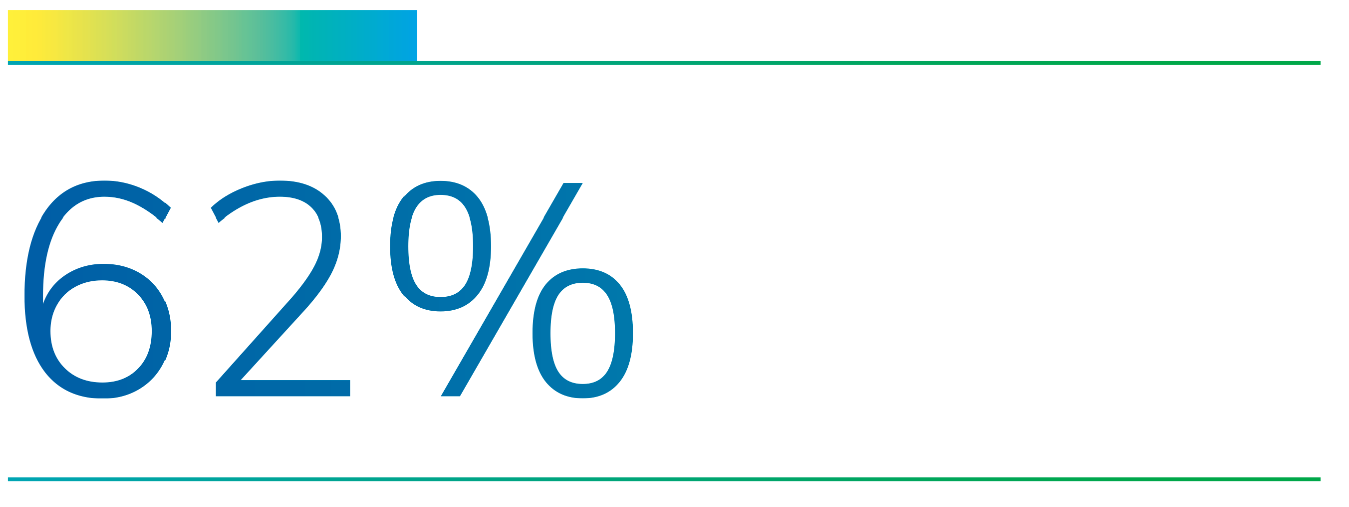
Recyclable packaging (India) in FY 2023-24
Our Research and Development division houses an expert team dedicated to eco-friendly
packaging
solutions
and innovations. This includes minimising packaging material usage, optimising existing
practices, shifting to sustainable alternatives, and promoting recycling among consumers.
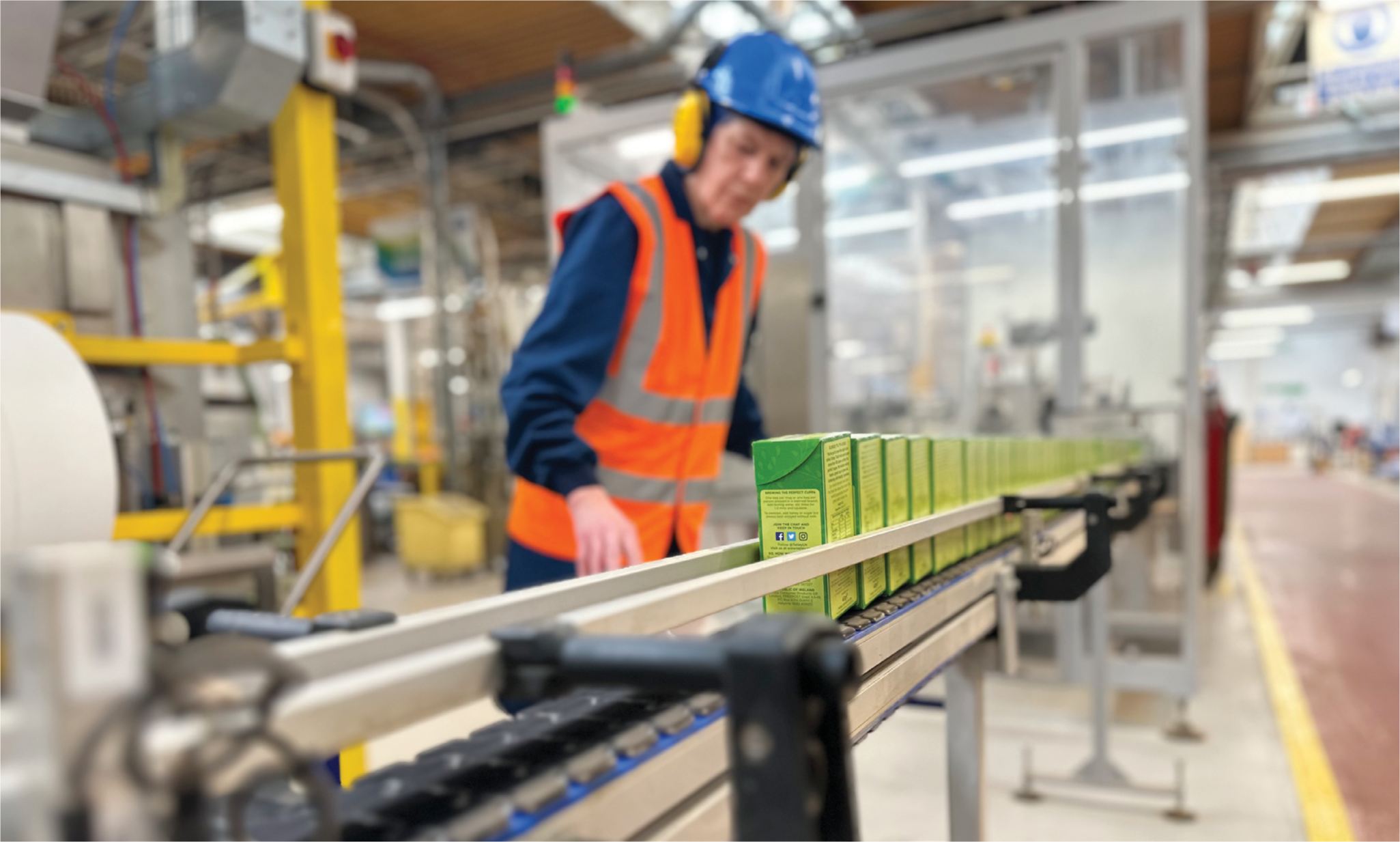
Tetley, Teapigs and Good Earth's large tea production facility in Eaglescliffe, Teesside,
England,
has been pioneering the transition to sustainable packaging.
Tetley took on the challenging task of introducing plant-based tissue packaging for tea
variants.
The new plant-based material identified for use in tea bags, functions at a pace six times
slower
than traditional materials, leading to issues with packaging efficiency and design. To address
this,
Tetley's engineers developed a new technology, currently under patenting, to maintain high-speed
production using the plant-based tissue. This solution prevents issues such as bag splitting,
maintaining both operational efficiency and product quality.
Innovative Packaging Redesign
Tetley is also redesigning its packaging, introducing a compact, efficient soft-pack design made
from recyclable card. The new design eliminates the need for plastic wrap, reduces waste, and is
fully recyclable and compostable. Additionally, the new design allows Tetley to keep its product
identity for Original, Decaf, Extra Strong and Gold lines.
The new soft-pack carton design could remove 34.6 million pieces of non-recyclable waste, and the conversion of 9bn teabags could eliminate 270 tons of oil-based plastic, equivalent to 22 double-decker buses. This would mean conversion of 699 million teabags and elimination of 7.2 million pieces from the waste stream. This project moves Tetley closer to its goal of eliminating single-use plastic and making all packaging compostable by 2025.
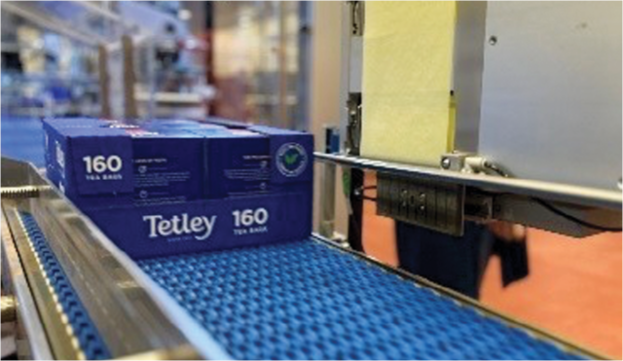
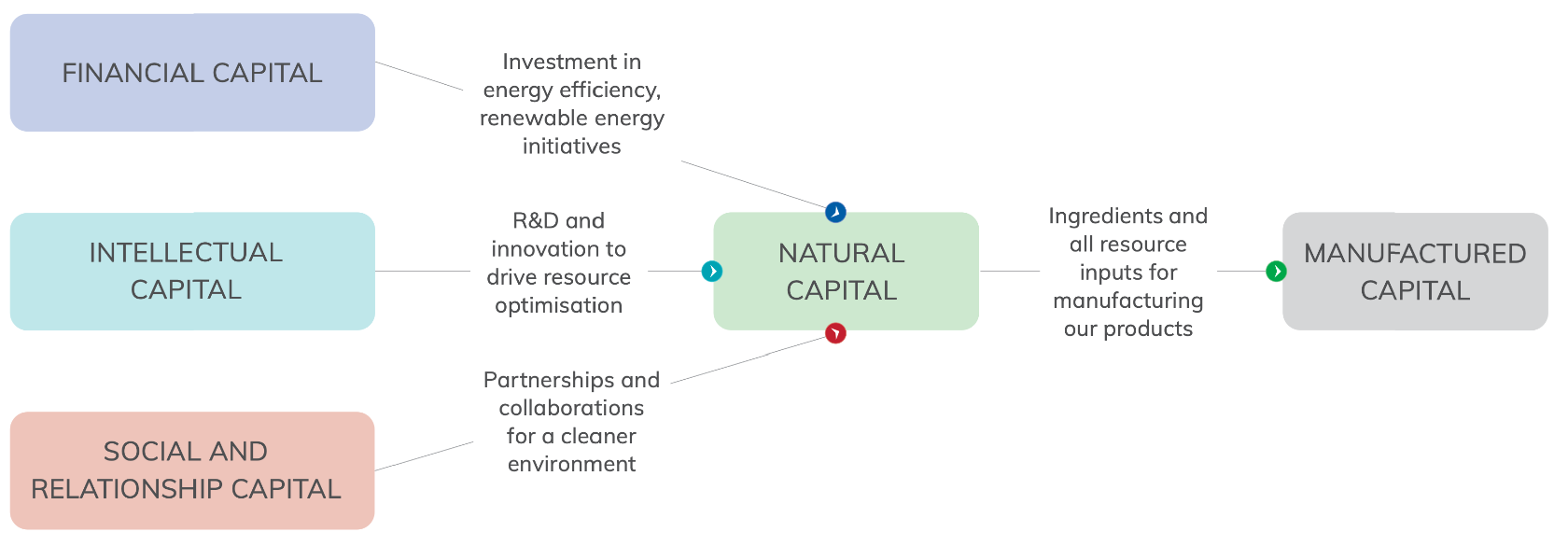


Number of Beneficiaries: 13,98,887
Employee Volunteering Hours: 70,903
Gender diversity percentage: 34%
Lost time injury frequency rate: 0.48
Our vision is to enhance the quality of life, creating shared value for our communities and foster an equitable, inclusive, and safe culture for our employees.
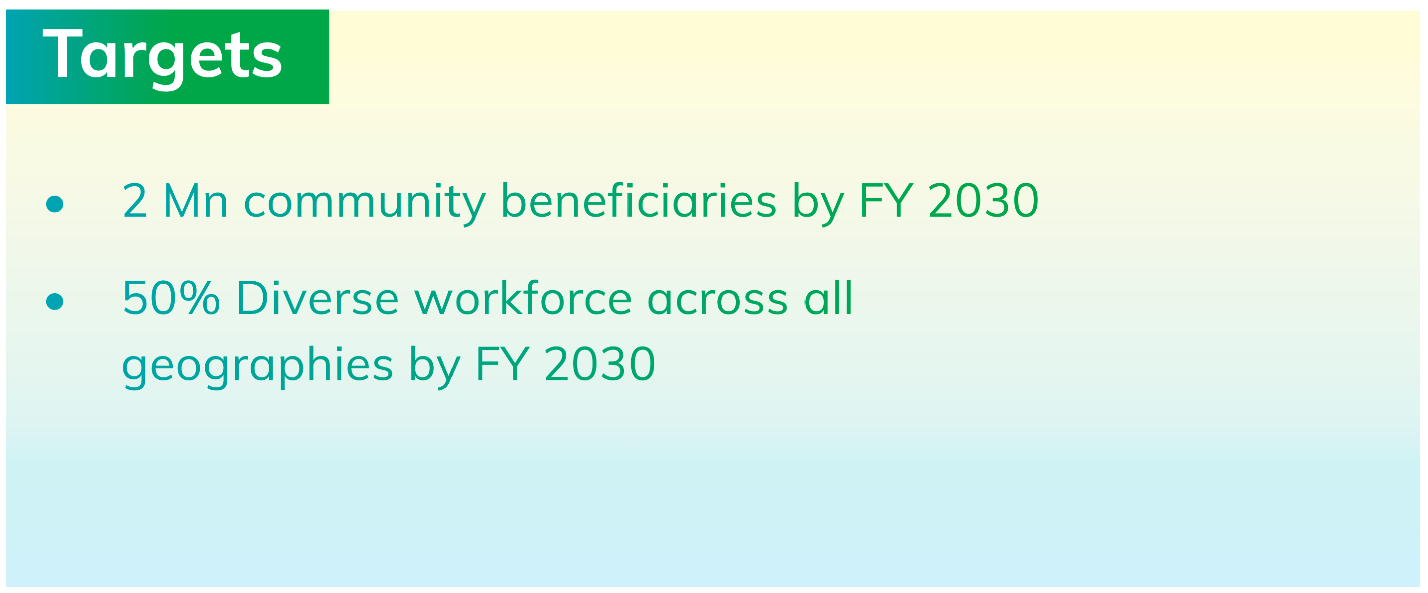
Our people are driven by the passion to create better products for better living - our workforce is the catalyst enabling us to constantly innovate and improve for the benefit of our consumers and the communities we serve. We believe in safeguarding human rights, and creating a culture of continuous learning and development with our values and culture at the core. Our 'For Better Communities' pillar also encompasses various Corporate Social Responsibility (CSR) focus areas such as improvement in health and nutrition among various under-served communities, assistance in rural development and women empowerment, facilitation of water and sanitation services, enhancement of education and vocational skills and provision of affordable healthcare.
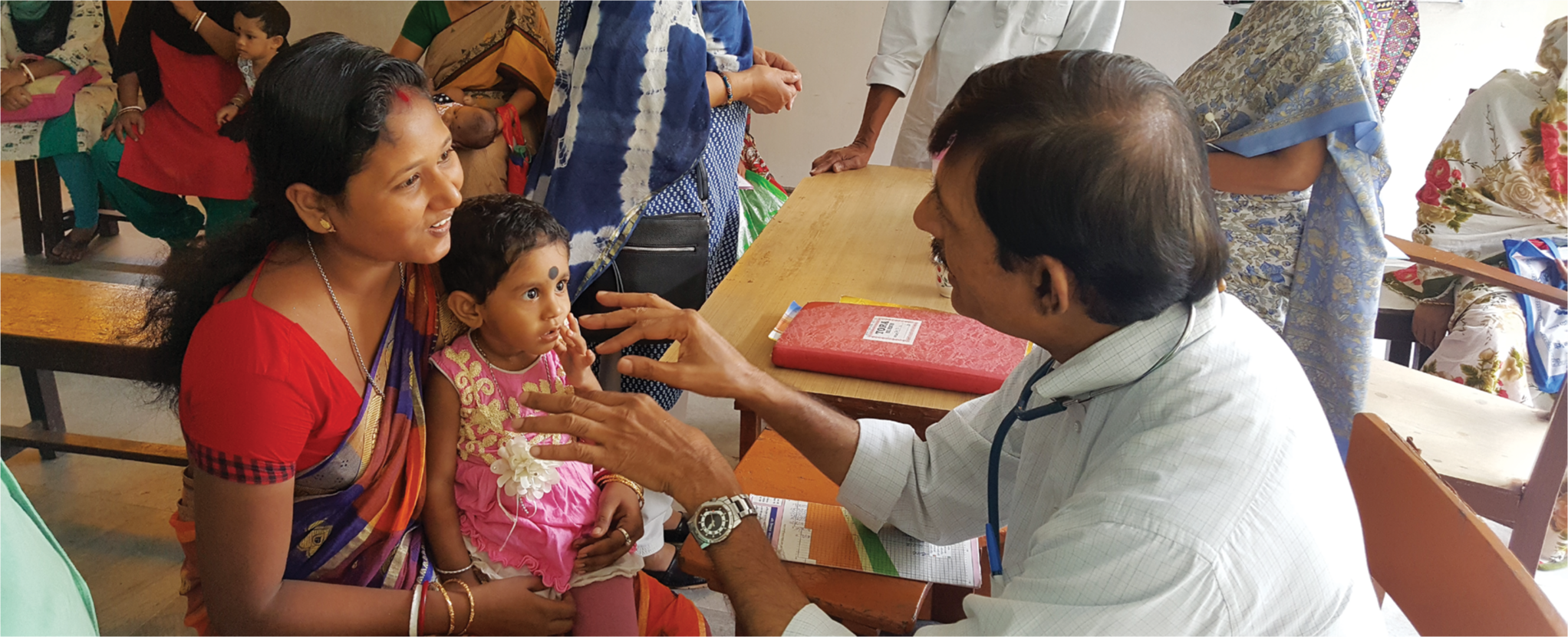
At Tata Group, our success is driven by the dedication, commitment, and talent of our people. We are committed to fostering an environment where every individual can thrive, grow and contribute to our collective success.
Our objective is to achieve 50% women representation in our workforce across all locations by
the
year 2030, having presently achieved 34%. This includes 24% of women who are employed in all
management grades. Furthermore, it includes 12% of women in junior management positions and 11%
in
the top management roles. Additionally, 12% of our STEM roles are filled by women, and 17% of
women
occupy management positions in revenue-centric departments. Sustaining our competitive edge
requires
placing the right talent in crucial roles and cultivating a highly engaged workforce.
As part of our annual employee engagement
survey - InterActions, we also track the sentiment
of our employees on the aspects of DEIB - Diversity commitment, Belonging, Inclusive- Culture,
Respect and Dignity and Speak Up Culture. In FY 2023-24, our score on DEIB was trending at 76
across
the organisation.
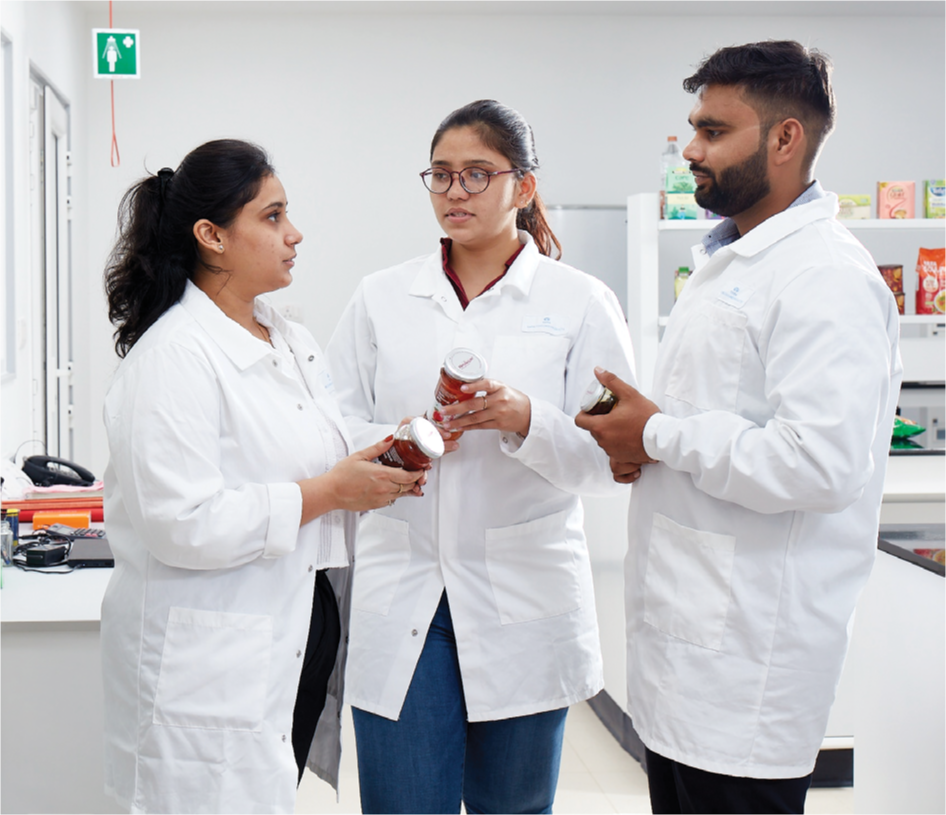
In FY 2023-24, there were 610 new recruits to our employee pool. TCPL also promotes
opportunities
for employees to transition across departments, through appropriate skilling. A notable portion
of
vacant positions are filled through internal transfers, accounting for 25% in FY 2023-24,
highlighting the adaptability and preparedness of our employees.
We are consistently working on enhancing the Diversity and Inclusion aspect of our Recruitment,
Retention, and Advancement strategy. We held an Inclusive Hiring workshop, targeted at equipping
our
human resources business associates and Talent Acquisition team with the necessary skills. In FY
2023-24, 18% employees chose to voluntarily leave the organisation comprising 14.8% women and
18.3%
men, where as our involuntarily attrition was 4% comprising 6.8% women and 4% men.
Our organisation acknowledges the role of trade unions in protecting workers' rights. 98% of our workforce is represented either by an independent trade union or through collective bargaining agreements. TCPL enjoys a high level of trust among all employee and worker cadres and engages in transparent and fair negotiation process and supports best in class working conditions, benefits, and wages for our employees and workers (including those on contract ). We consistently maintain equal pay for all genders and job roles, also ensuring all employees, including those from our contractors, suppliers, and franchisees, receive a wage as per law of the land that allows them to, at minimum, meet basic needs.
Our annual employee engagement survey serves as a
valuable tool, offering insights into the organisation's pulse. We actively listen to team members
at
various stages of the employee life cycle. This approach helps us gain valuable feedback, identify
areas
for improvement and enhance the overall employee experience within the organisation. In FY 2023-24,
the
Executive Committee decided to optimise the frequency of surveys, reducing it from twice a year to
once,
with the primary focus shifting to action planning and initiatives that help drive
engagement.
The qualitative and quantitative insight collected through
the survey are analysed and the feedback is cascaded to employees through Focus Group Discussions,
where
actions are collaboratively decided upon by the teams and their respective people managers. The
Engagement Index, which is a key parameter of measurement in the survey, for FY 2023-24 is 72. This
number is an average of Advocacy indicator (employee recommends TCPL as great place to work),
Sentiment
indicator (How happy is the employee at TCPL) and Loyalty indicator (Is the employee feeling valued
for
his/her contribution).
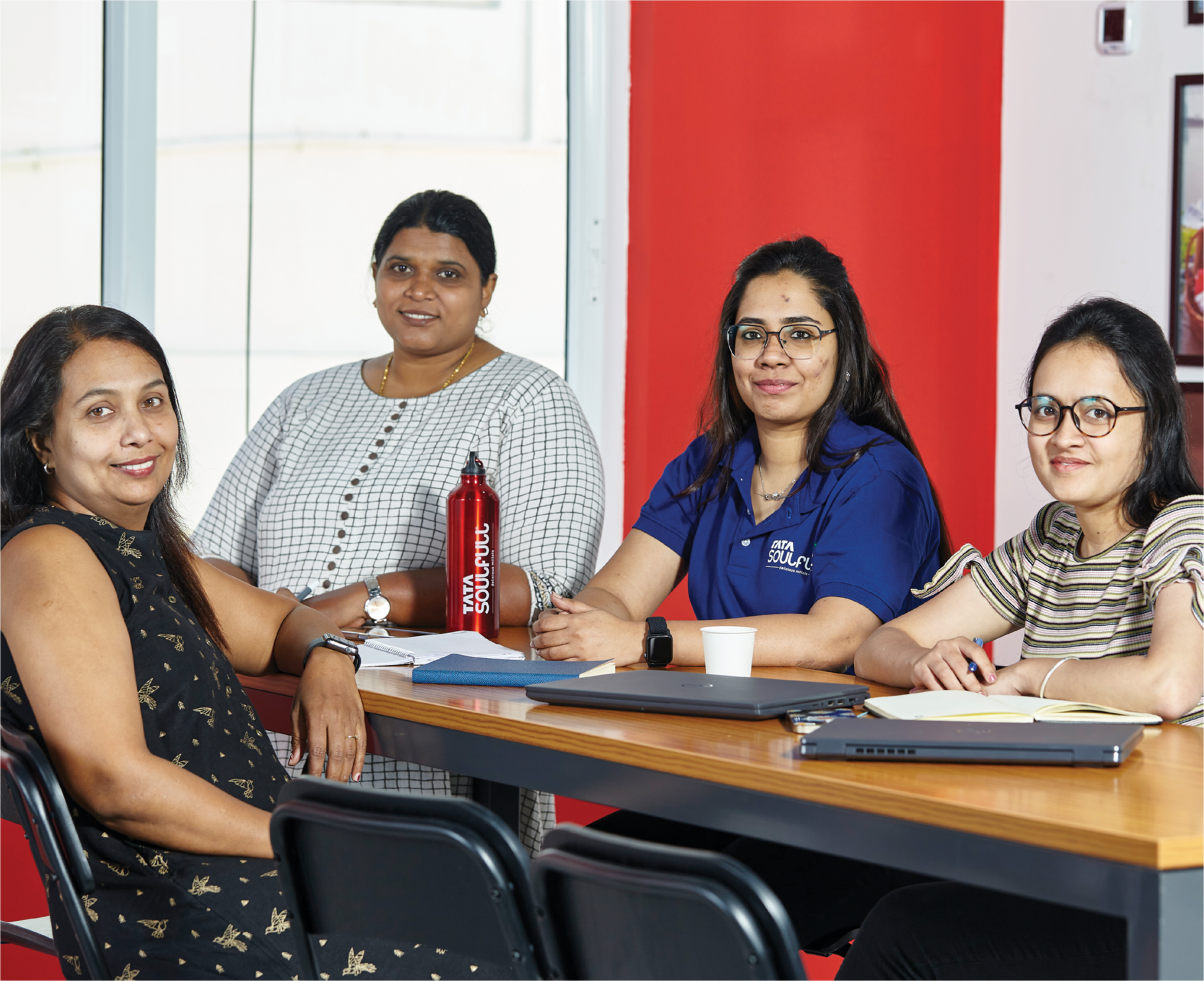
At TCPL, all employees are offered diverse avenues for personal growth. We foster continuous learning and development at every level throughout our workforce, utilising both internal and external training channels, both online and offline. Moreover, a broad array of knowledge resources is accessible to address the unique needs and interests of each individual.
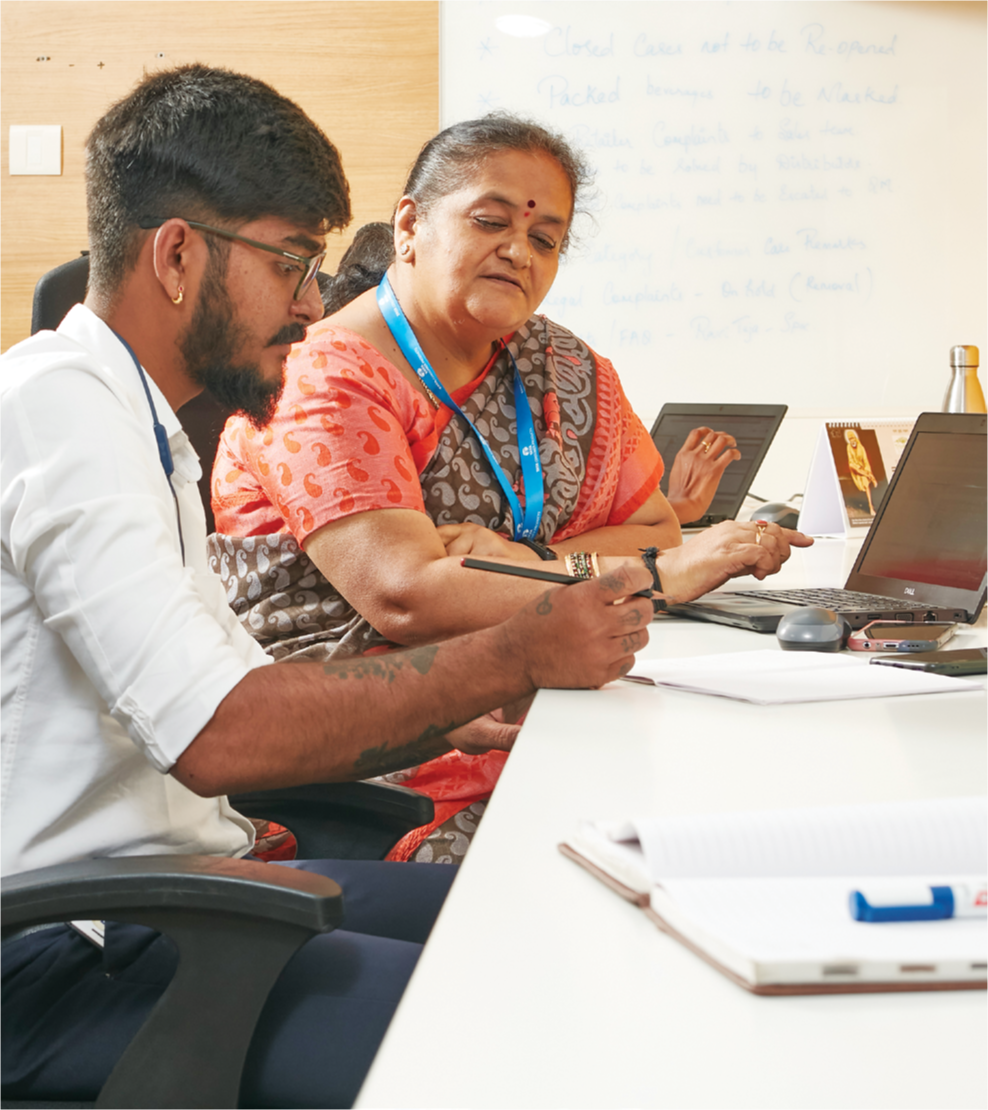
We tailor learning solutions to align with the growth goals of both employees and the organisation.
Our
learning interventions are categorised into three types: targeted sessions for key and top talent,
tailored programs for specific groups, and company-wide initiatives designed in line with the
objectives
and audiences. Additionally,
we offer access to various learning platforms, including LinkedIn Learning, which supported 15,595
hours
of learning in FY 2023-24.
Investing in training and development leads to beneficial outcomes like better skilling, lower
turnover
rates, reduced costs of external hiring, and a more engaged, committed workforce. On average, TCPL
dedicated 7.3 hours of training and development per full-time equivalent (FTE) employee. This is
customised to fit the needs of different management, including junior, middle, and senior/top
management
level. The company has invested approximately INR 8,500 per FTE on these training and development
initiatives.
Our training programs not only enhance employees'
skill sets but also support their performance and preparedness. They provide a framework for
employees
to chart their professional growth, practise acquired skills in their job roles and are pivotal in
setting and achieving performance objectives. This directly contributes to more informed and
comprehensive performance evaluations. Various types of individual performance management
assessments
are employed, through Management by Objectives and agile conversations to ensure continuous
feedback.
Performance reviews are conducted on an annualised basis, ensuring continuous evaluation. As
an organisation, we prioritise fostering frequent and meaningful conversations, both formal and
informal,
to cultivate a culture of high performance. Through
our Conversation Framework, comprising Performance Planning, Mid-Year Review, Year-End Review, and
Communication discussions, every employee and manager is encouraged to engage in clear and candid
dialogues throughout the year. We utilise statistical methods such as the bell-curve methodology to
assess and distinguish performance, evaluating each employee's alignment with their grade and role
within the organisation.
Employee development programs that have been developed to upgrade and improve employee Skills - with 83% FTE participation

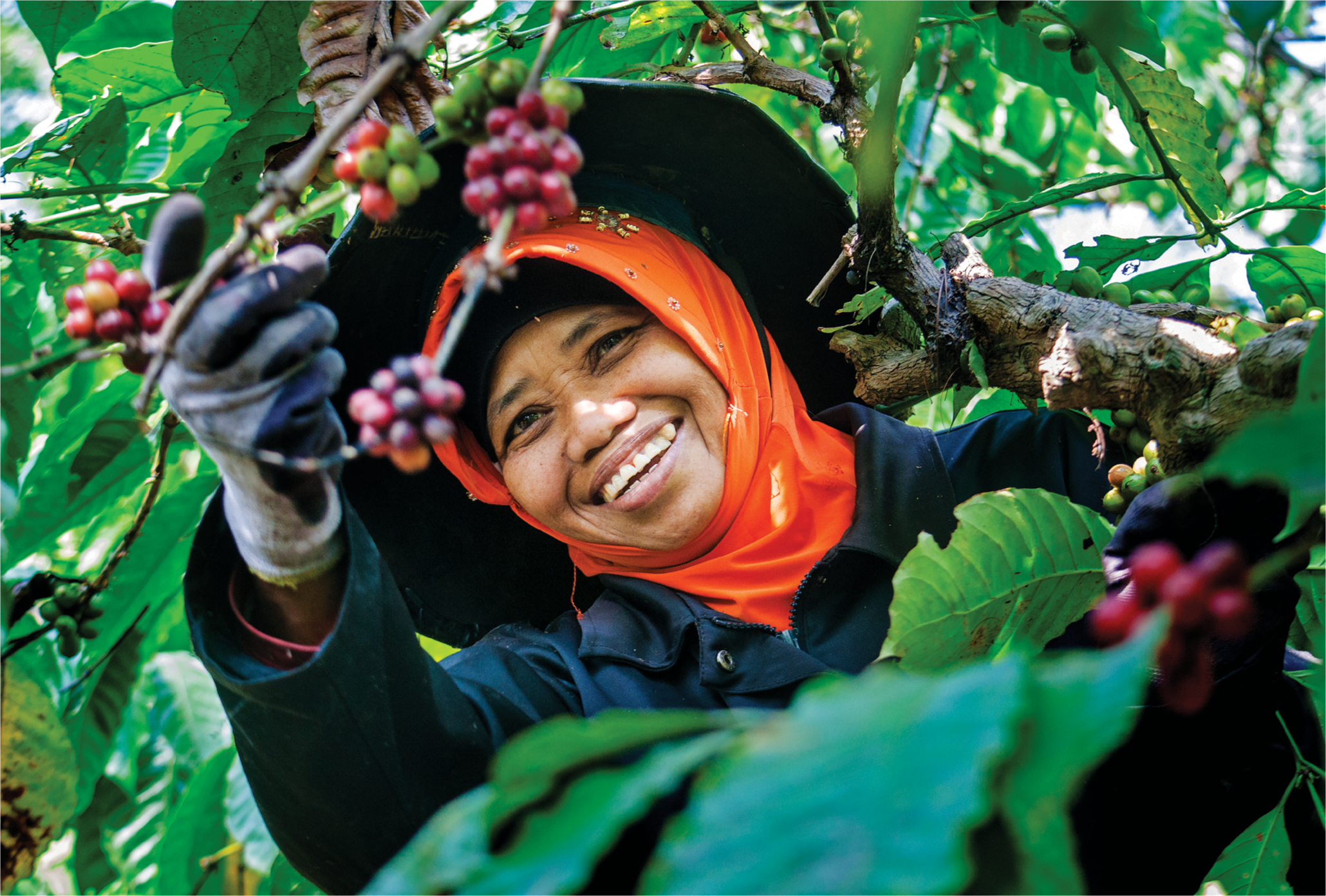
We are committed to preserving human rights across all facets of our operations and throughout our value chain. In line with this commitment and the Tata Group's human rights vision, we have instituted a Business and Human Rights Policy. The policy denounces all forms of harassment (mental, physical, sexual etc) explicitly, displaying zero tolerance towards any form of discrimination.
It stipulates that any discriminatory behaviour or harassment will be met with
appropriate corrective or disciplinary action. Furthermore, the policy details our proactive endeavours
towards preventing incidents of discrimination and harassment at our workplace and training is provided
for the same. Oversight of this framework is provided by an Apex Committee, while a dedicated Working
Committee for Human Rights ensures its implementation at the operational level. The Tata Code of Conduct
and the Supplier Code of Conduct incorporate provisions for human rights and establish mechanisms for
grievance reporting and resolution, encompassing both our employees and partners within the value chain.
Also, we actively participate in industry initiatives such as trustea (where we are one of the founding
members) and the Rainforest Alliance, which provide for active assessment of human rights impacts on a
periodic basis. All 25 of our Tata Coffee plantations are SA 8000 certified, demonstrating our
commitment to
upholding human rights at the work place. In addition, three of our manufacturing facilities are also
SA8000
certified.
The India trustea program, with over 947 million kg of tea sales verified till March 2024, has positively impacted human rights conditions in tea plantations. It has covered approximately 1,30,250 small growers and 6.8 Lakhs workers, ensuring improved working conditions, including maternity benefits and childcare facilities for women. Additionally, it has implemented structured grievance redressal systems, provided decent housing and portable drinking water, and established uniform wage payment systems for tea workers.
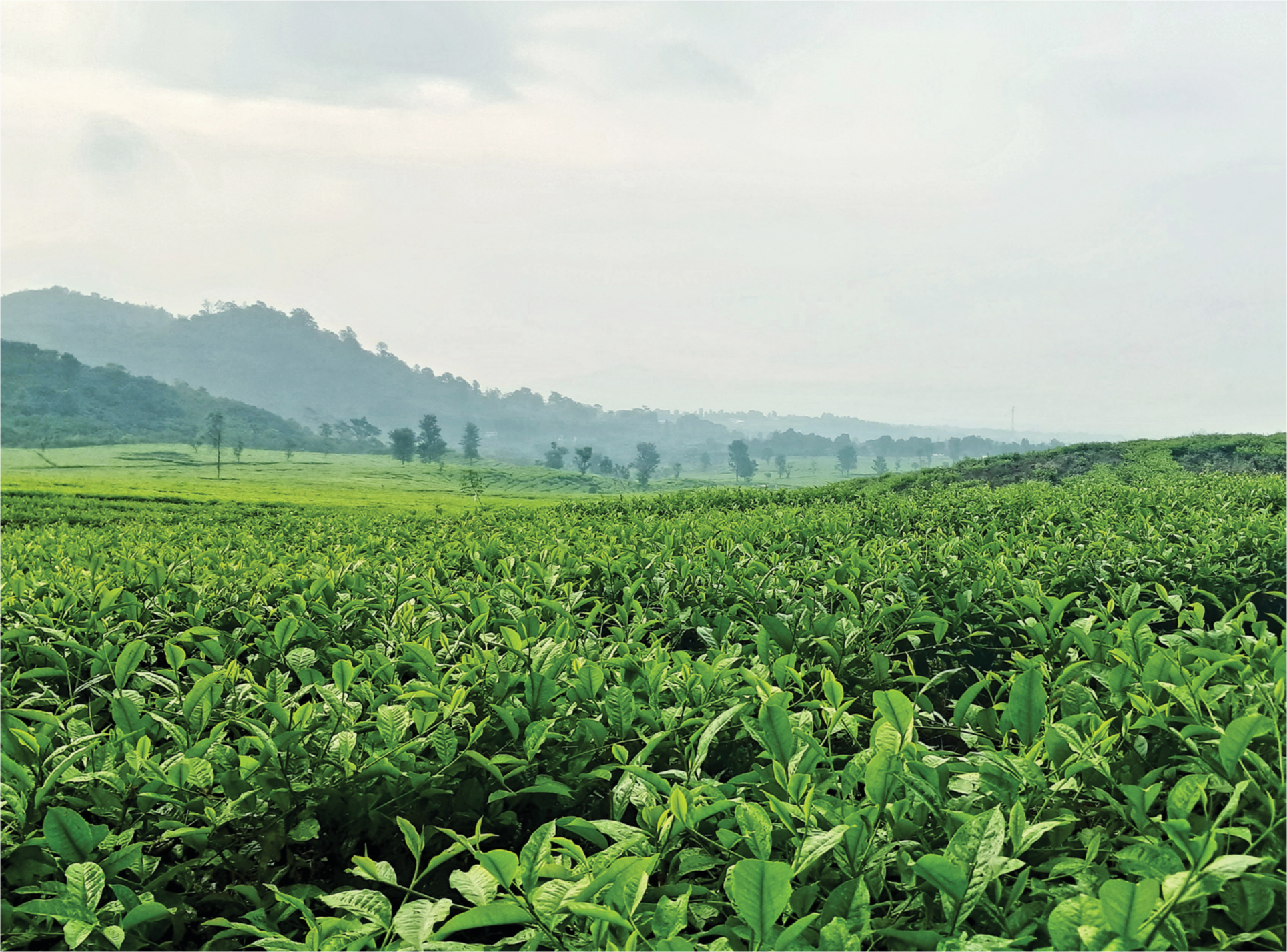
Our organisation's steadfast commitment to fostering a robust safety culture is articulated in our Safety, Health and Wellbeing Policy. This policy serves as our guiding principle in structuring effective safety measures that seek to protect the integrity of our assets and the overall wellbeing of our workforce. We have implemented a comprehensive Occupational Health and Safety Management System, encompassing rigorous risk assessments, tailored action plans, and emergency preparedness measures. Our dedication to maintaining high OHS standards is validated by achievements such as ISO 45001 certification for 70% of our units globally (excluding plantations), extensive safety training programs, and a commendable safety record. During FY 2023-24, our corporate team organised 26 unique safety training programs, with approximately 2,593 employees participating, totalling 6,480 hours of
dedicated safety training sessions. Our progress towards reducing or preventing health risks is
constantly
evaluated against set targets, with internal inspections conducted periodically. Procedures are in place
to
investigate
all work-related accidents, illnesses, and incidents. Continuous training and enhanced safety procedures
have fortified our organisational safety culture, maintaining zero fatalities for employees and
contractors
and low Lost Time Injury Frequency Rate (LTIFR). OHS criteria
are also considered in our procurement and contractual requirements.
Moving forward, we remain committed to sustaining this proactive approach, leveraging data-driven
performance evaluations to drive continuous improvement, and fostering a culture where safety is
ingrained
in every aspect of our operations.

Our communities lie at the core of Tata's mission and significantly influence our actions, mindset, and identity. We strive to uphold the Tata group's standards for exceptional CSR and meaningful contributions to the nation's progress. Our commitment to empowering communities is at the core of our values and drives our corporate responsibility initiatives. Through strategic partnerships, impactful projects and dedicated efforts, we aim to uplift and support the communities where we operate.
We have established a strong governance structure to oversee the implementation of our CSR projects. The CSR governance structure is led by the Corporate Social Responsibility & Sustainability Committee (“CSR&S Committee”) of the Board, which empowers the working committee of the Company to act on its behalf. The formation of this committee adheres to the specifications of Section 135 of the Companies Act, 2013. The committee also formulates and recommends the CSR policy, CSR activities and expenditure, and monitors the implementation of CSR activities.
Tata Consumer Products (TCP) is committed to be the most admired natural food and beverages
company
in the world by making a significant and lasting difference through Sustainability and Corporate
Social Responsibility.
Centred on the theme of Fostering Sustainable Livelihoods, our CSR projects are dedicated to
assisting communities in achieving socio-economic advancement. TCPL facilitates access to
education
and vocational training, affordable healthcare, water and sanitation, as well as, rural
development
initiatives.
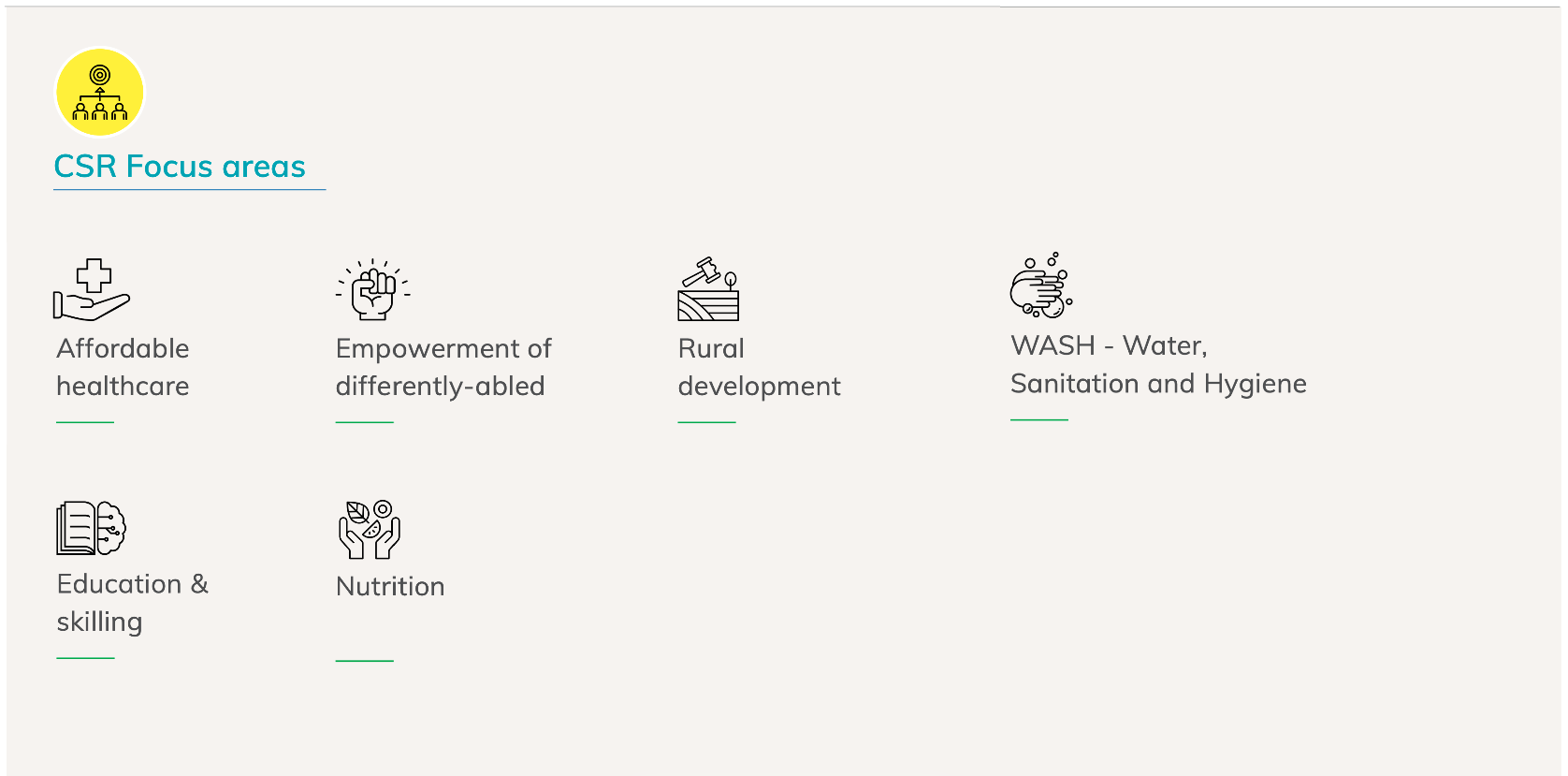
Tata Consumer, through ‘Project Jalodari’, has been instrumental in addressing critical water challenges in Assam and Himachal Pradesh. By focusing on water quality issues in Assam, the project has significantly improved the health outcomes of local communities. Simultaneously, in Himachal Pradesh, the implementation of spring-shed management initiatives has strengthened water security in the Himalayan region, ensuring reliable access to water for drinking, domestic, and agricultural purposes. Through a community-centric approach, this collective action has not only addressed immediate water-related concerns, but has also empowered local
communities and fostered community engagement, laying the foundation for sustainable water
management practices in the region. The project is being implemented through Tata Trusts and
associate organisations.
The Project reaffirms our long-term commitments
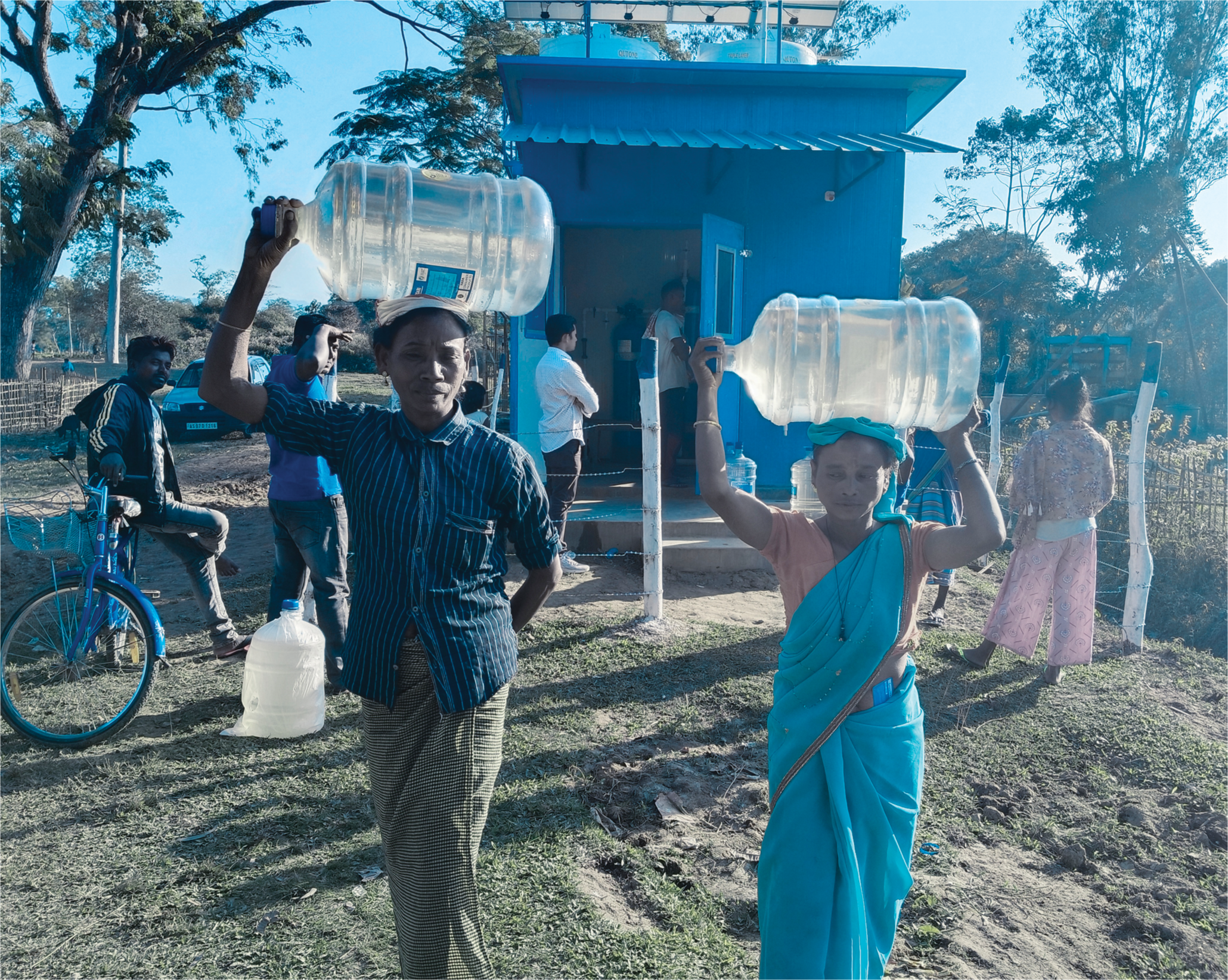
#ForBetter Living,
#ForBetterPlanet, and
#ForBetterCommunities.
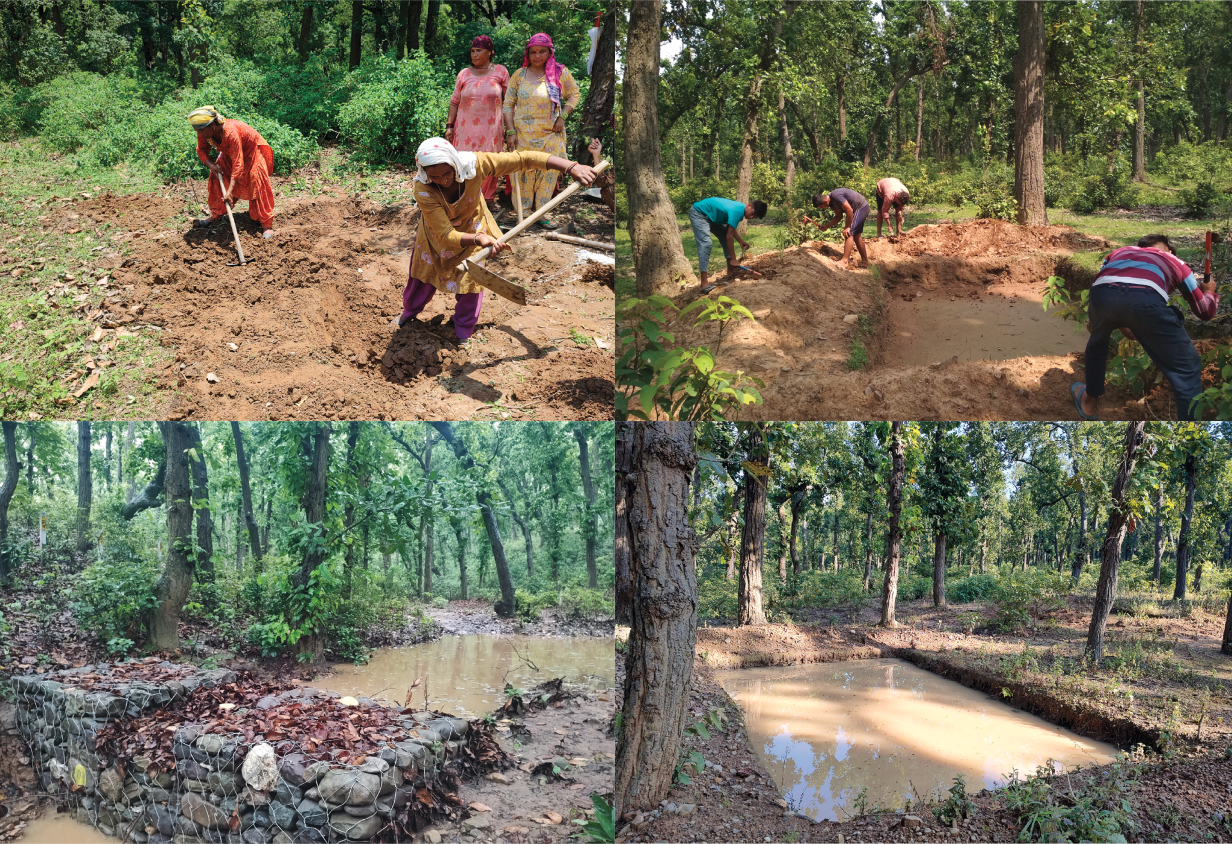
In Paonta Sahib, Sirmour, Himachal Pradesh, the scope of the project includes integrated water, sanitation and hygiene services with a core focus on source sustainability, through spring-shed management.
In Jorhat and Golaghat regions of Assam, issues of iron in drinking water are quite prominent, with the water not being fit for human consumption. With a view to provide safe drinking water and improve the health of local communities, the project initiated an integrated water, sanitation & hygiene programme in the region.
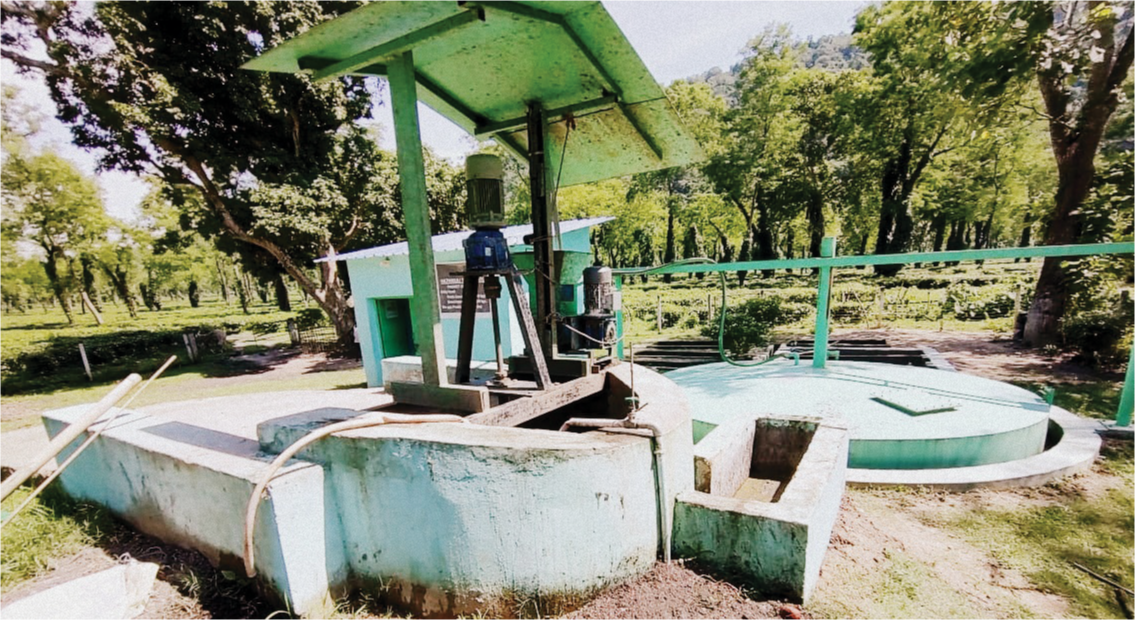
These include (i) Awareness on relationship between improved menstrual practices and the health of women and the stigma associated with menstruation; (ii) Promotion of access to eco-friendly and reusable menstrual absorbents; (iii) Inculcating safe menstrual practices; and (iv) Responsible disposal of menstrual waste. The programme has covered more than 7,000 women and adolescent girls in project Jalodari and has demonstrated substantial impact on improved health of communities. The women have also shown health-seeking behaviour and have started taking support of medical teams on issues related to menstruation and allied aspects.
The UN declared 2023 as the International Year of Millets to promote healthy and sustainable millet
diets. TCPL leveraged this to increase the outreach of millet farming, aiming to drive rural and
tribal
communities towards sustainable, organic millet agriculture. We began with baseline surveys and
initiating Self-Help Group (SHG) meetings and village gatherings. Tribal and other farming
communities
were educated on topics such as benefits of millets and organic farming among others, through
workshops
and discussions. In five months, we conducted 1,997 Haadi visits, 1024 SHG visits,
and 120 village meetings, reaching 1782 individuals. We also used community videos and radio
programs
to disseminate information on farming techniques, millet cultivation, and marketing strategies.
Initially, we analysed 102 soil samples to tailor farming practices
to soil conditions. We provided farmers with technical support through training on vermicompost,
'Jeevamritha' preparation, scientific sessions, and exposure visits, focusing on natural farming,
organic manures, modern equipment, and marketing.
TCPL distributed millet seeds to 90 farmers, along with trials of various millet varieties and
provided
irrigation equipment to 40 farmers from 21 different haadis. Furthermore, the initiative focused on
diversifying crops,
promoting ecological diversity, and potentially boosting farmers’ income.
This program underlines our commitment to sustainable development and long-term prosperity by
positively
impacting multiple stakeholders, including rural and tribal farmers, consumers, and nature.
